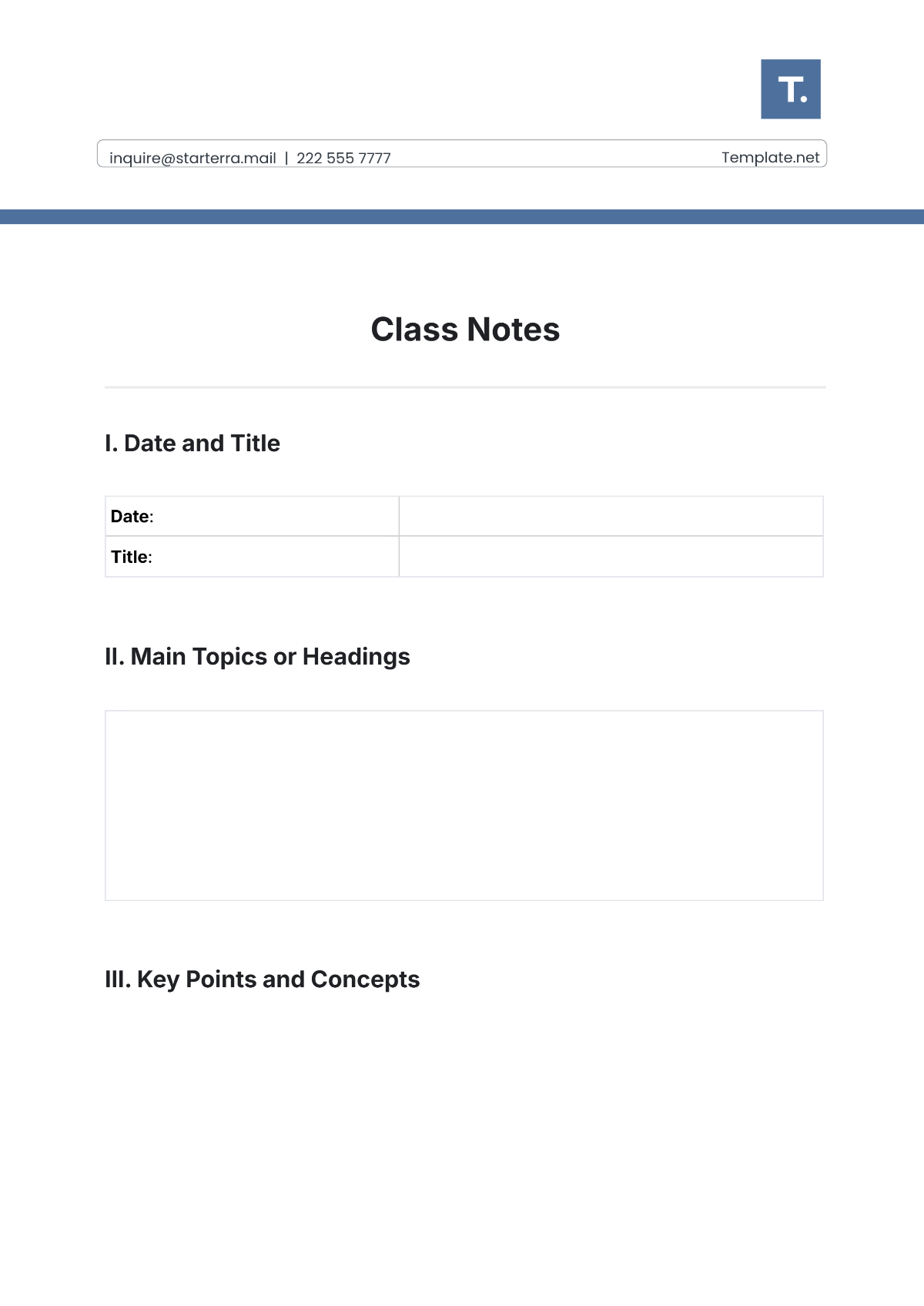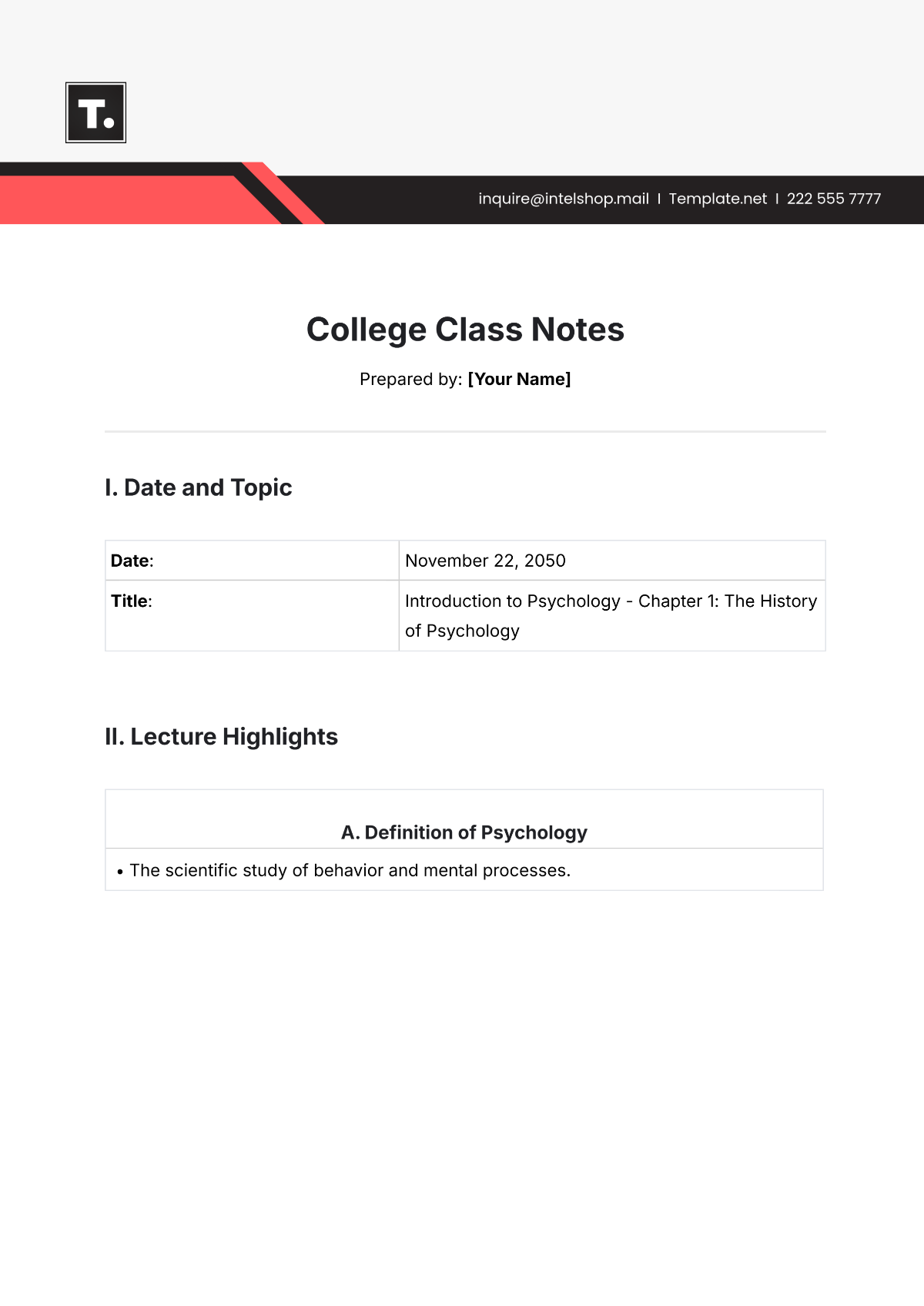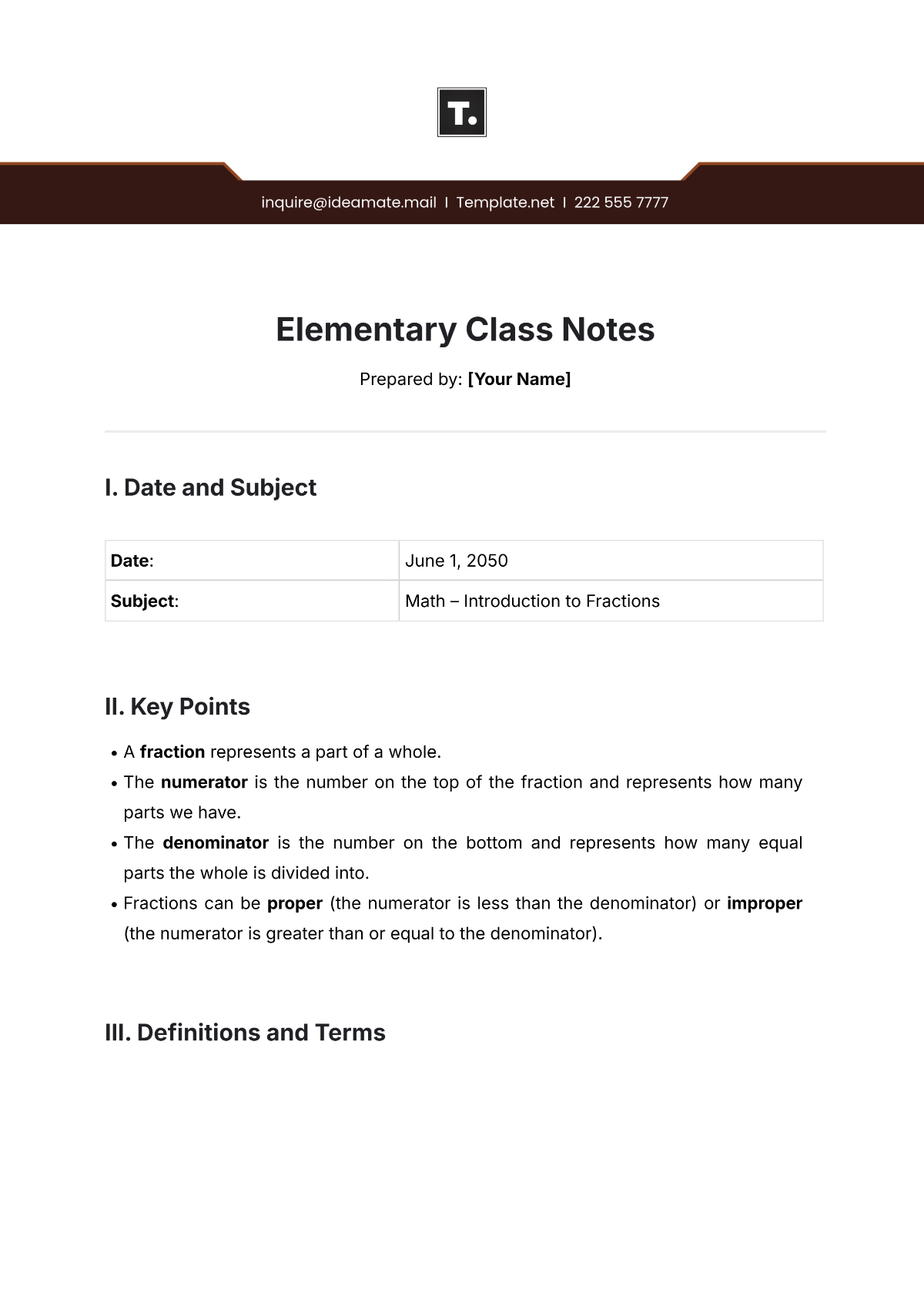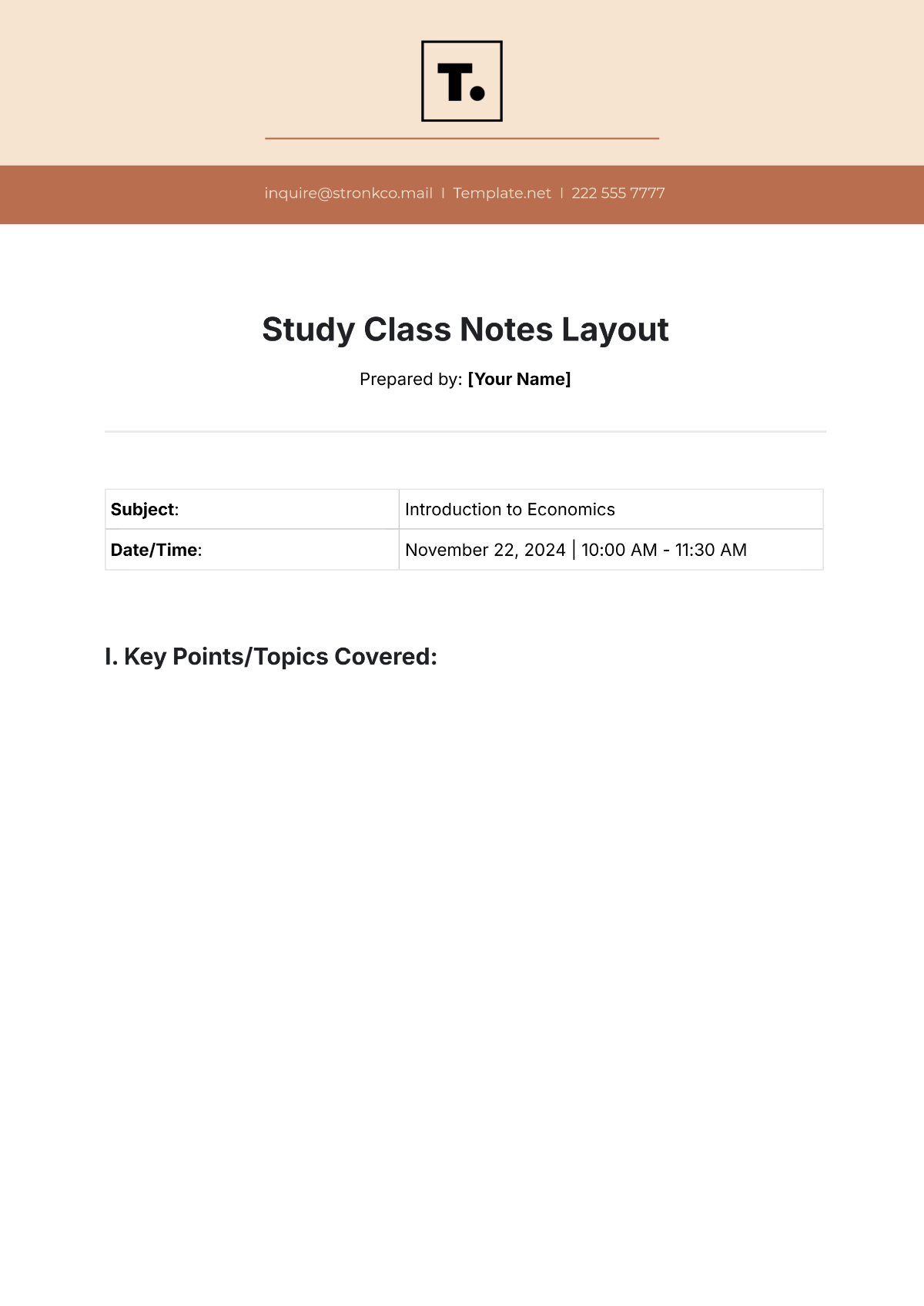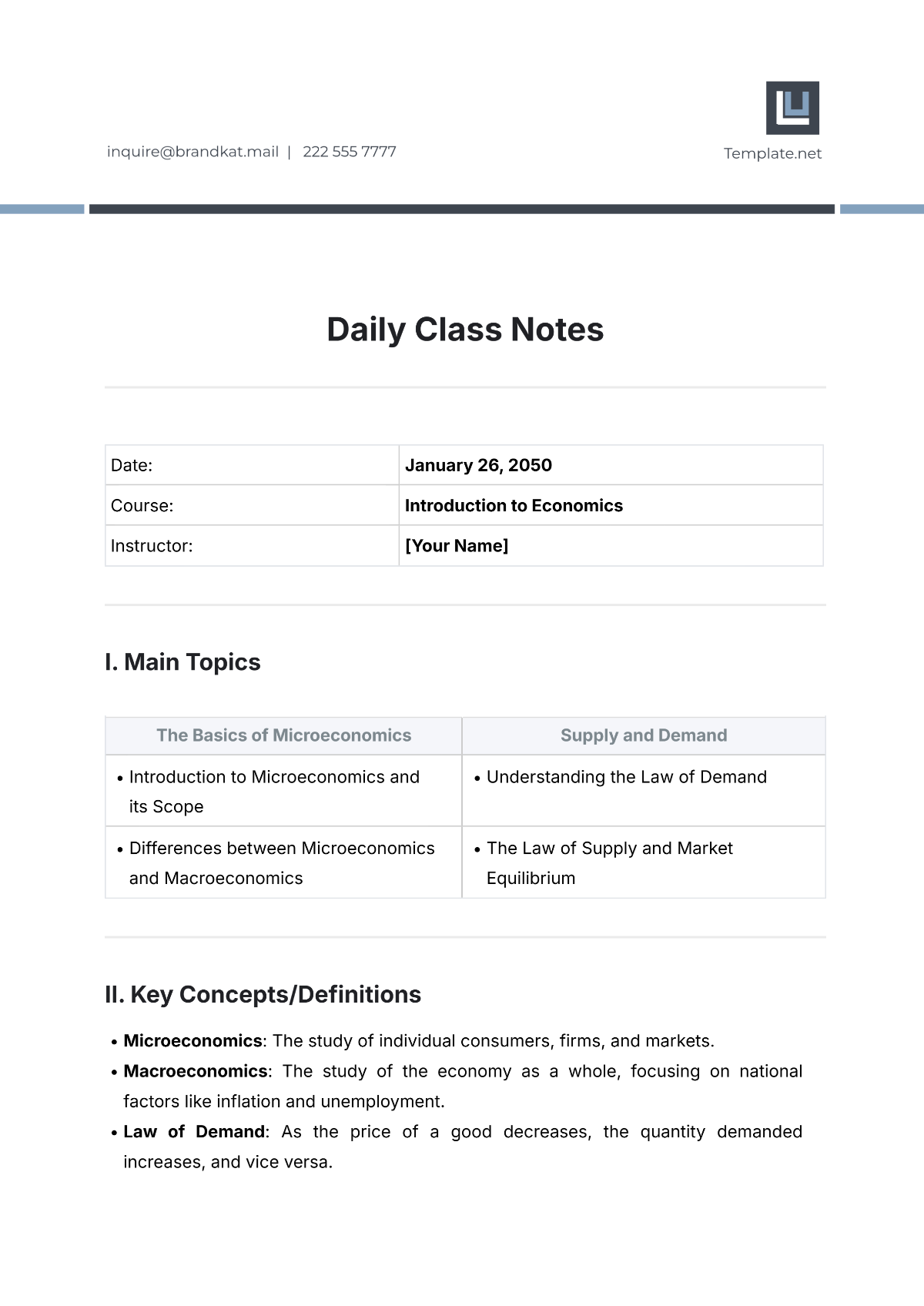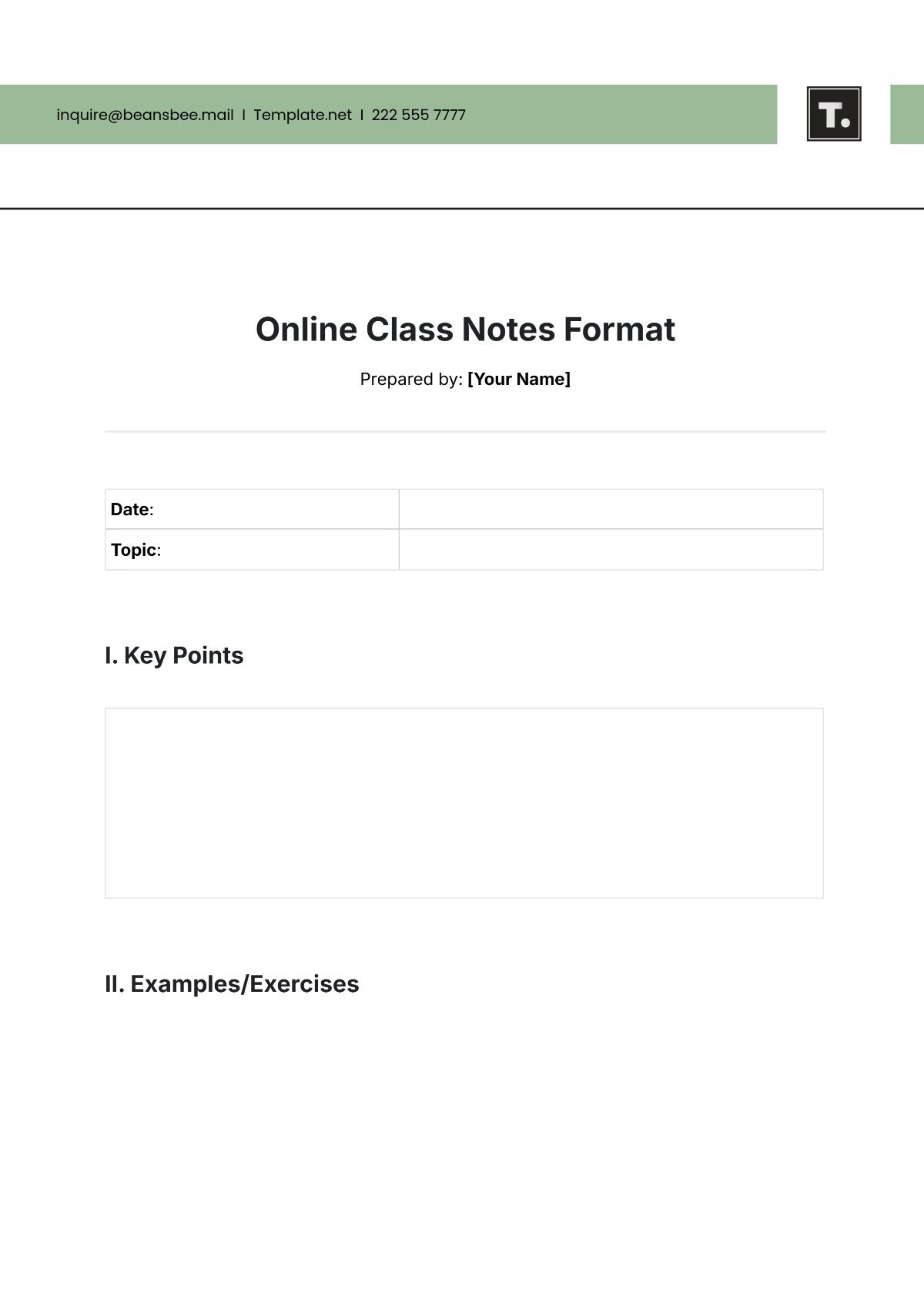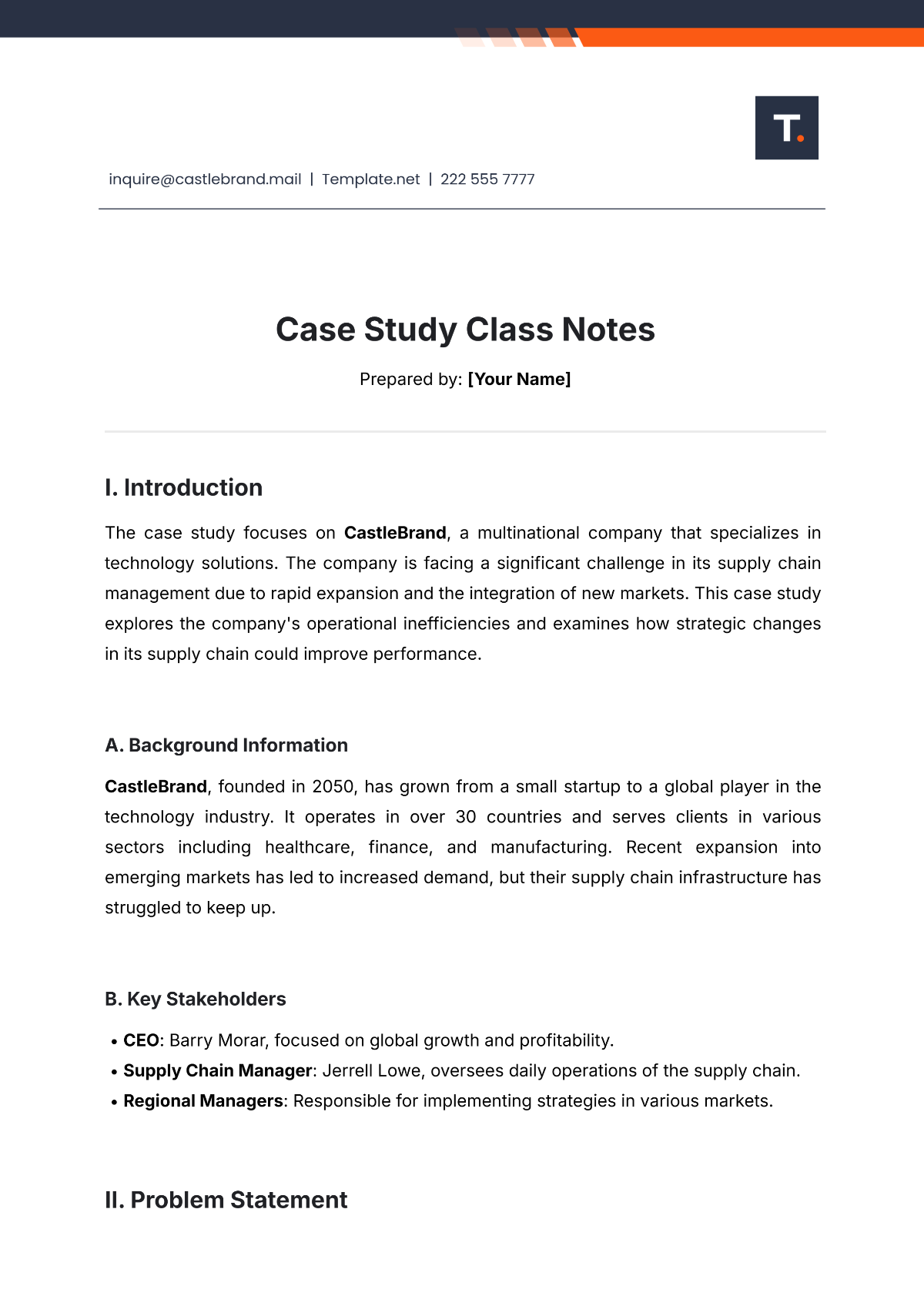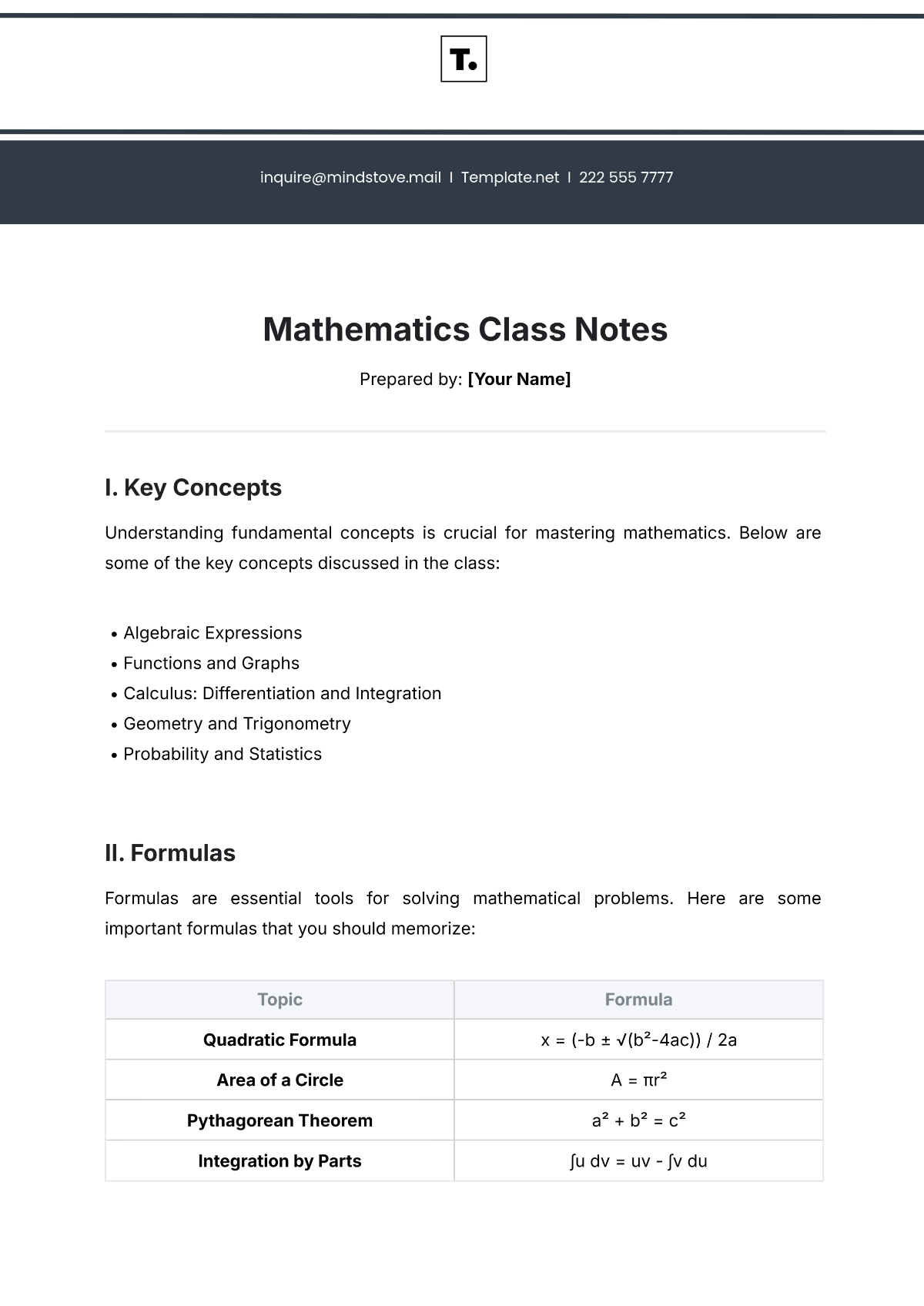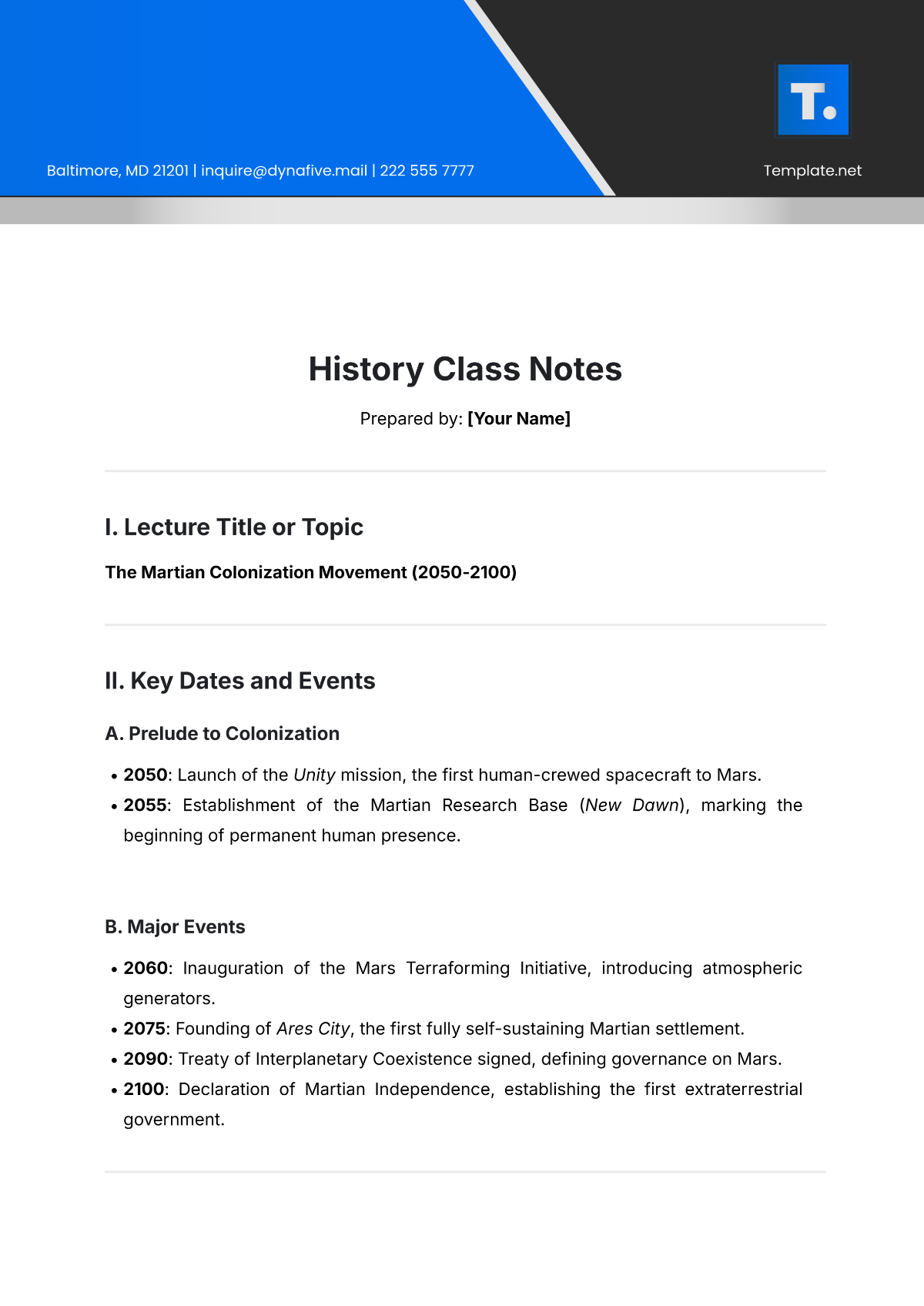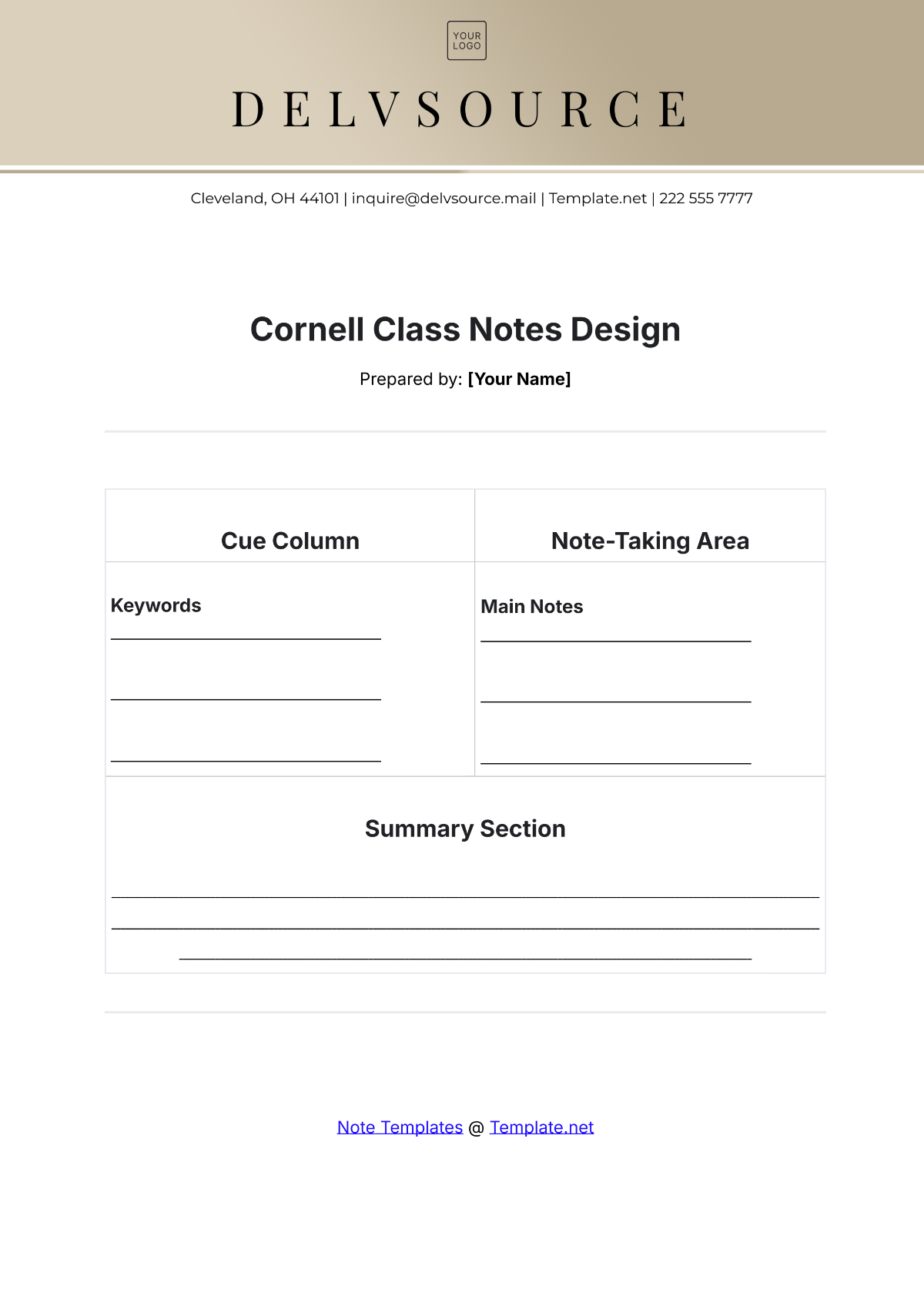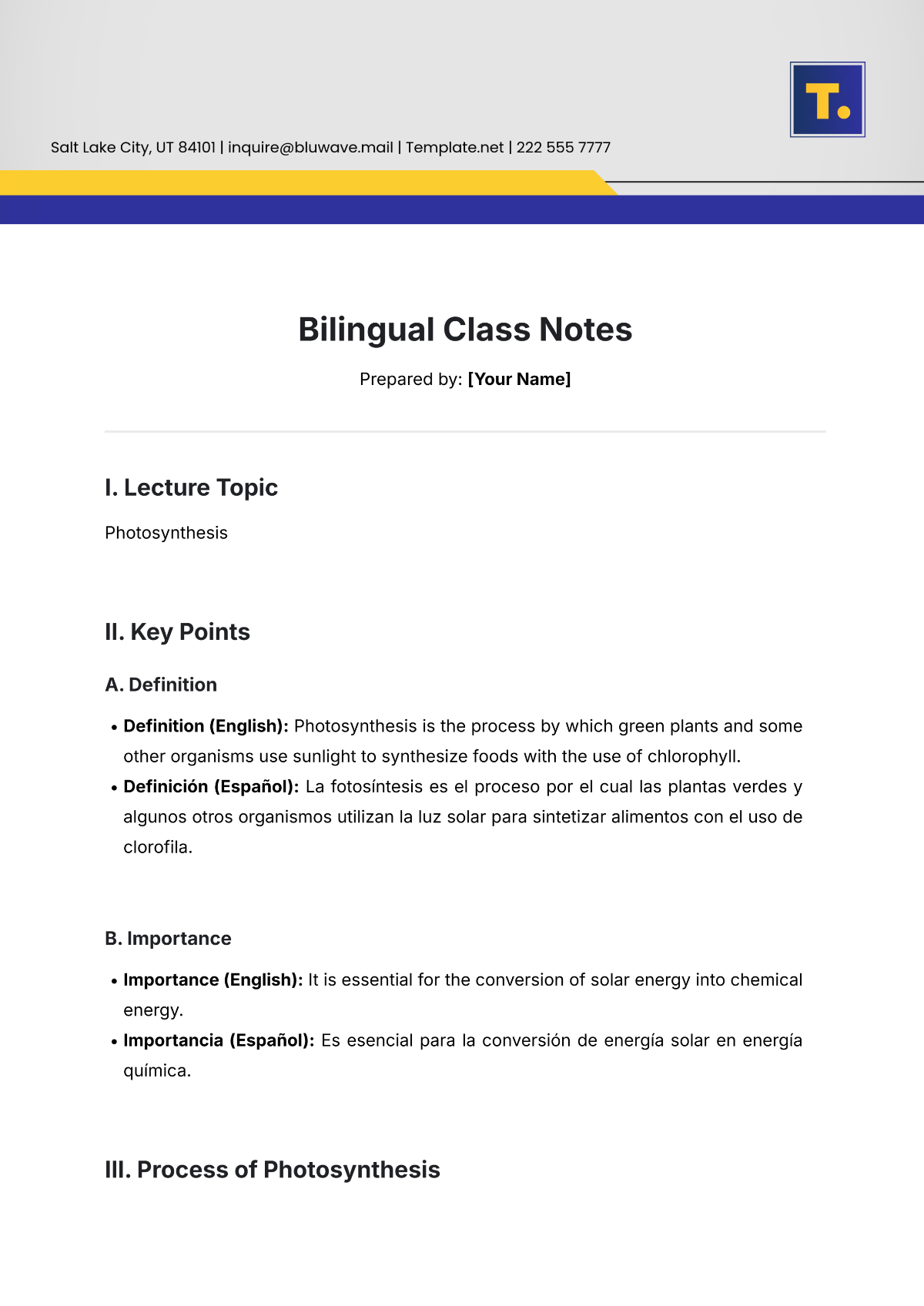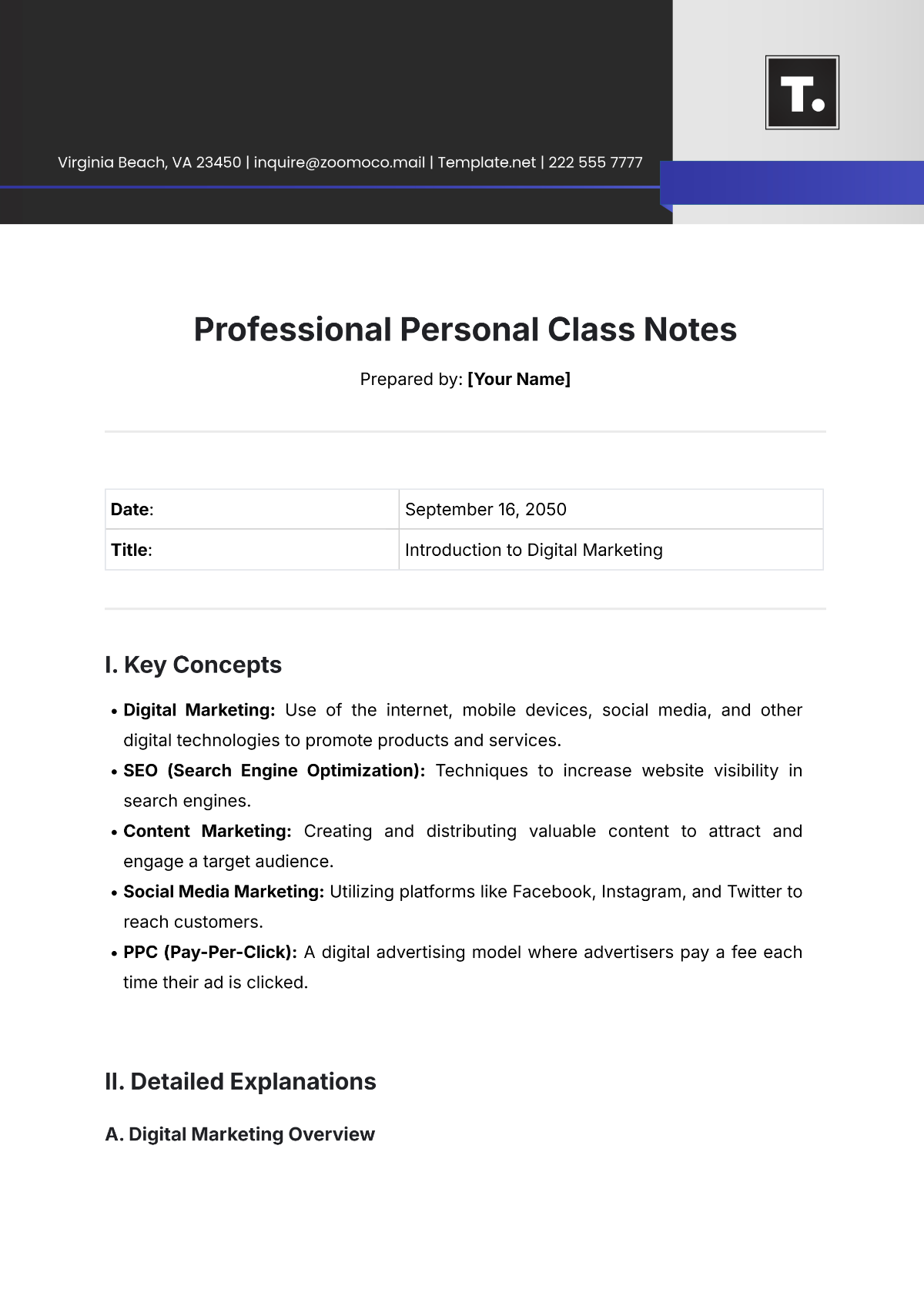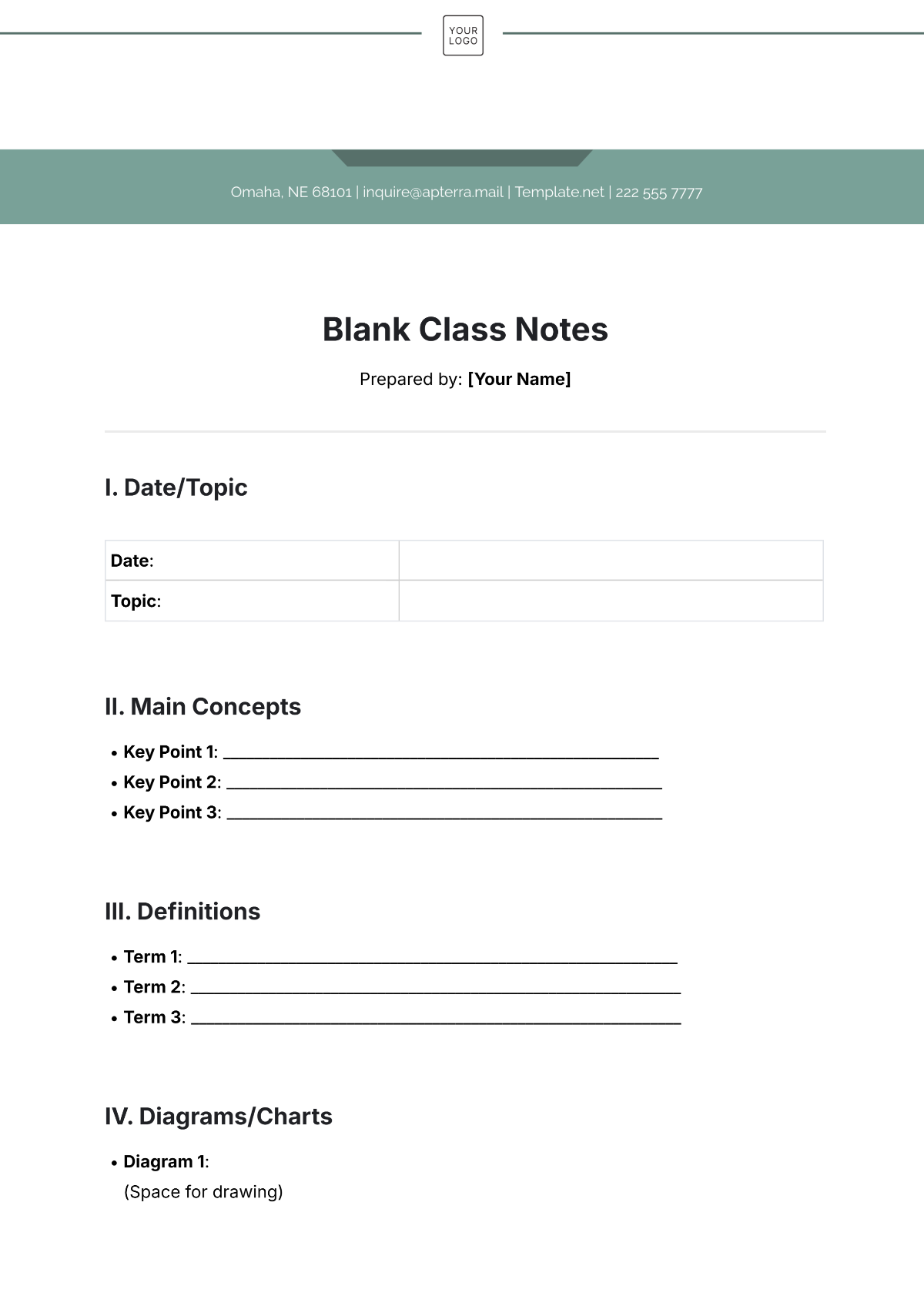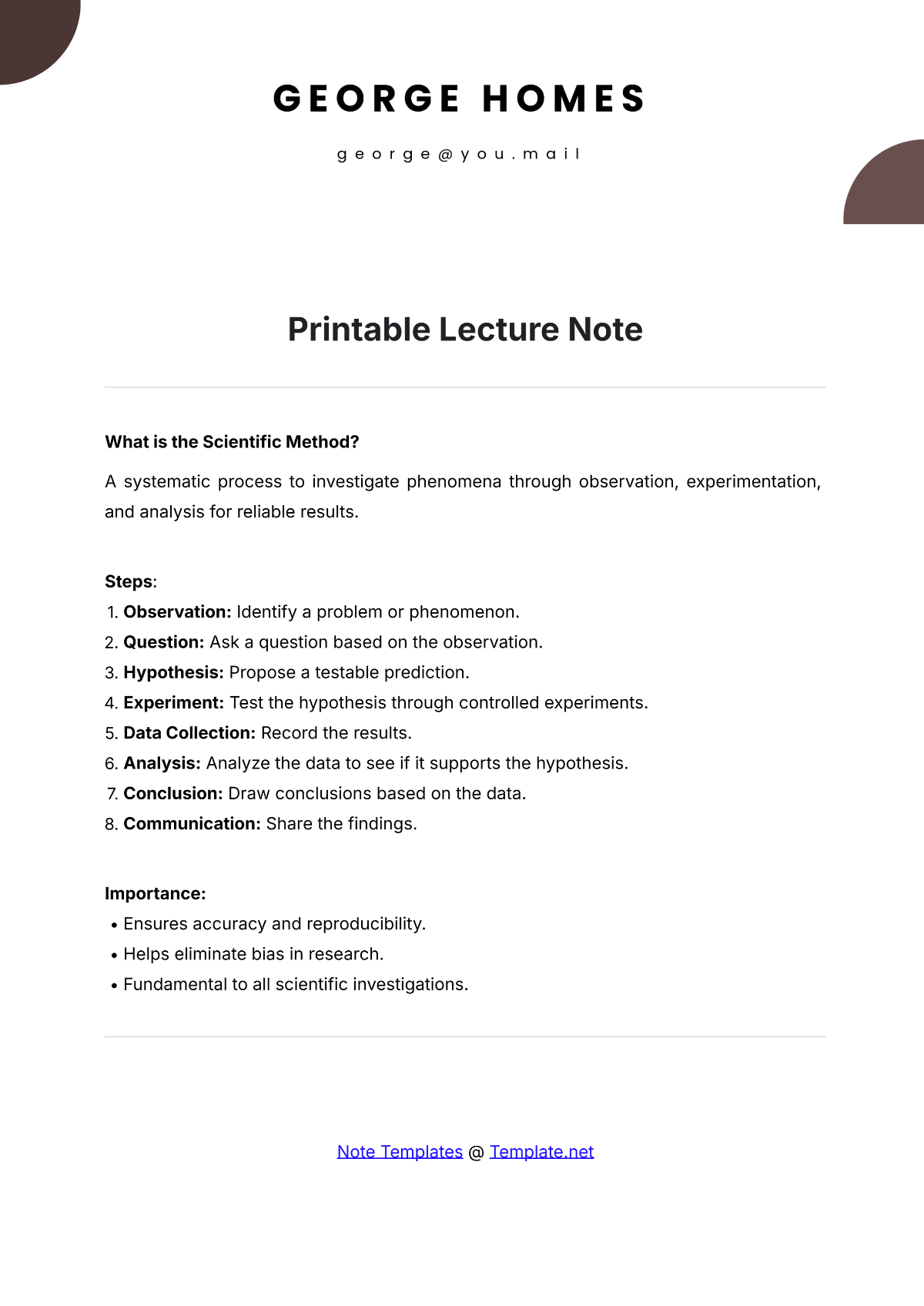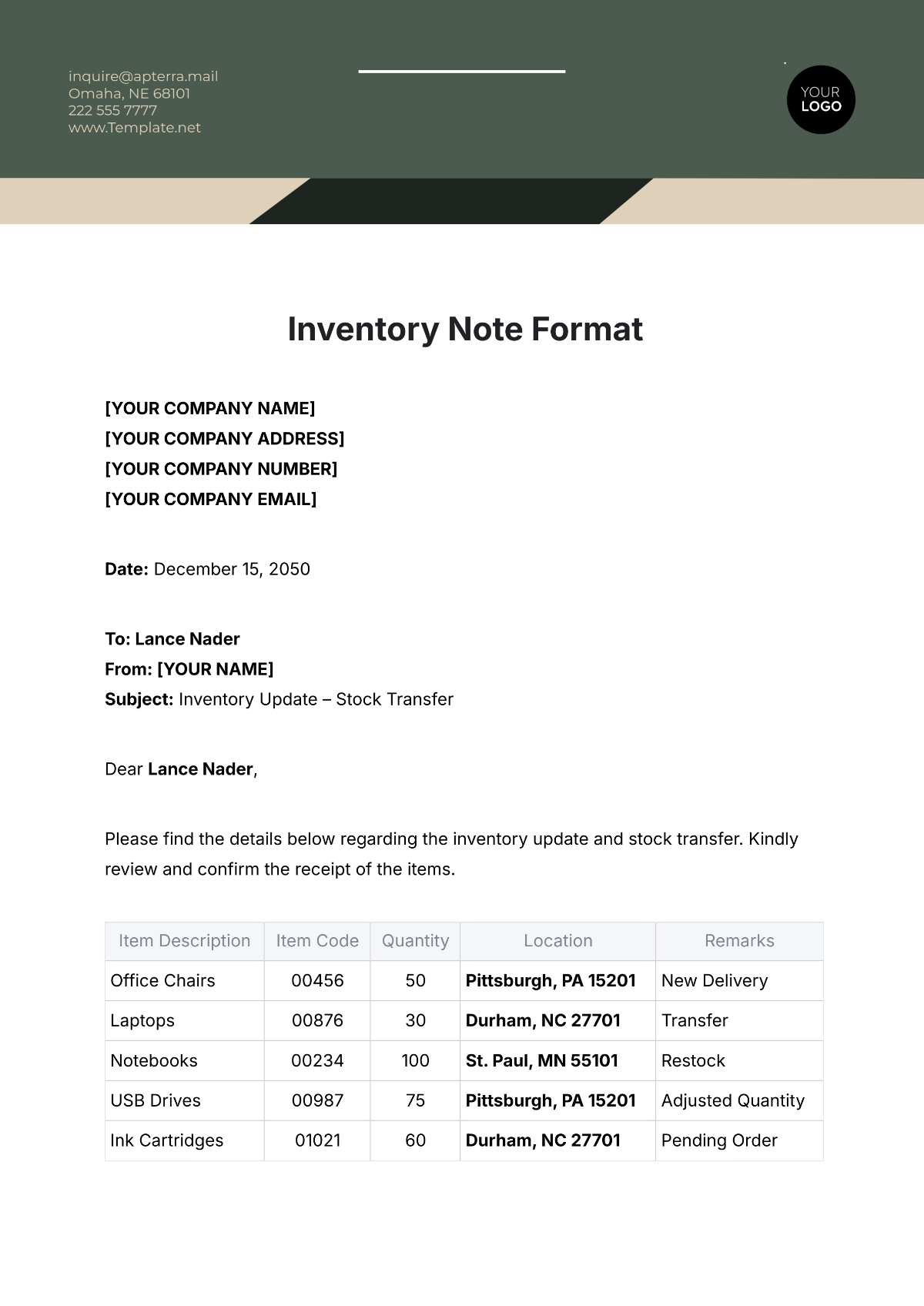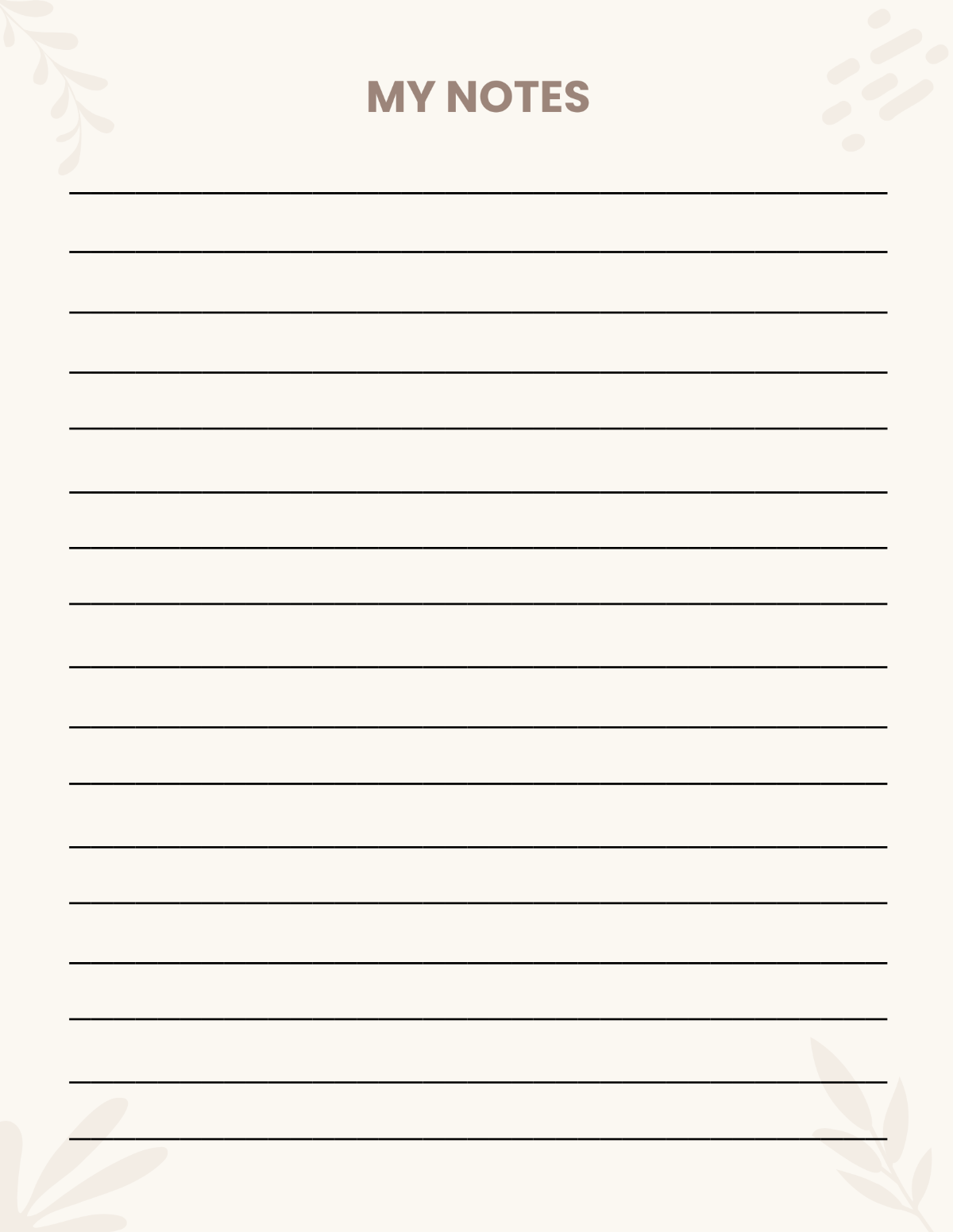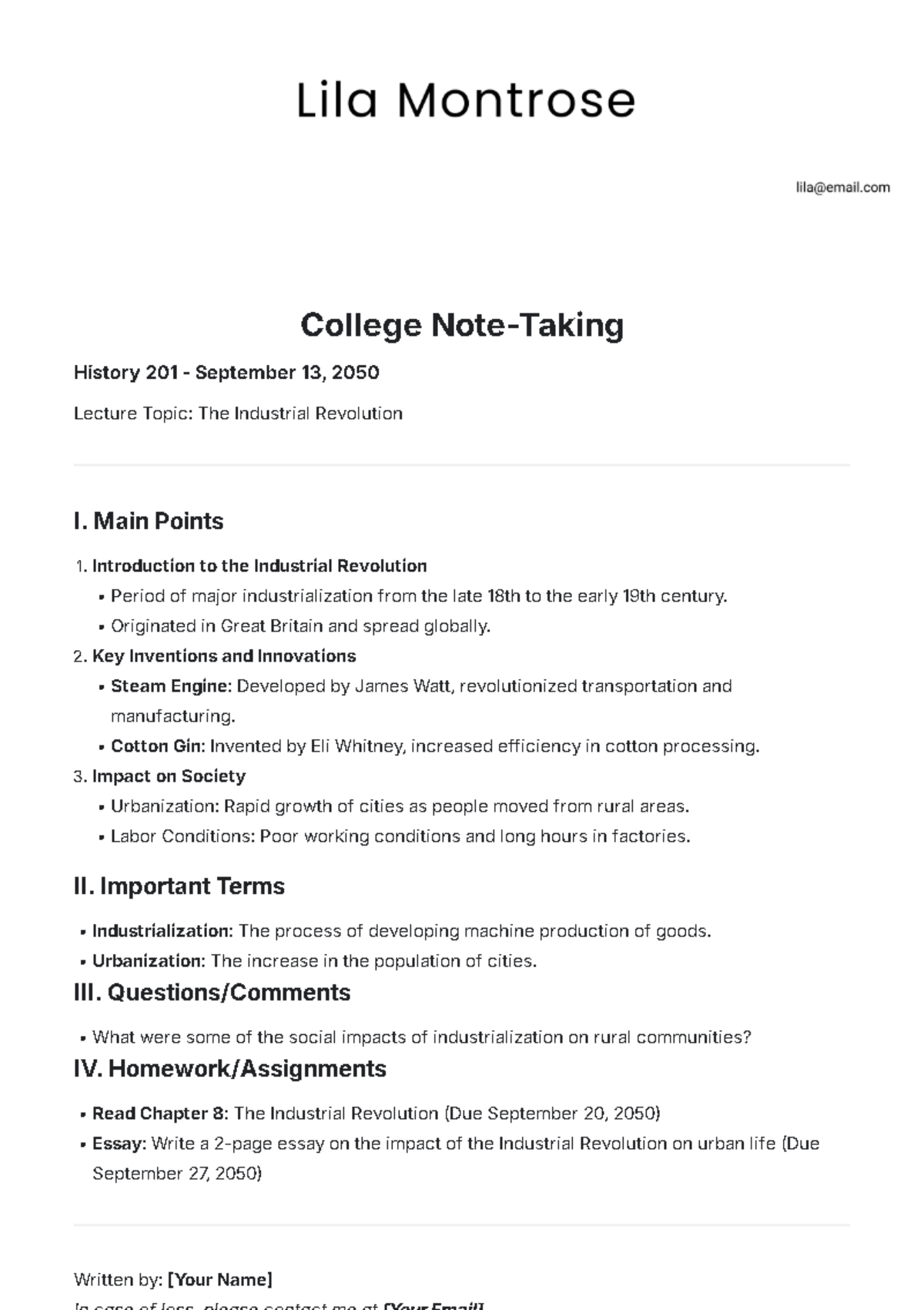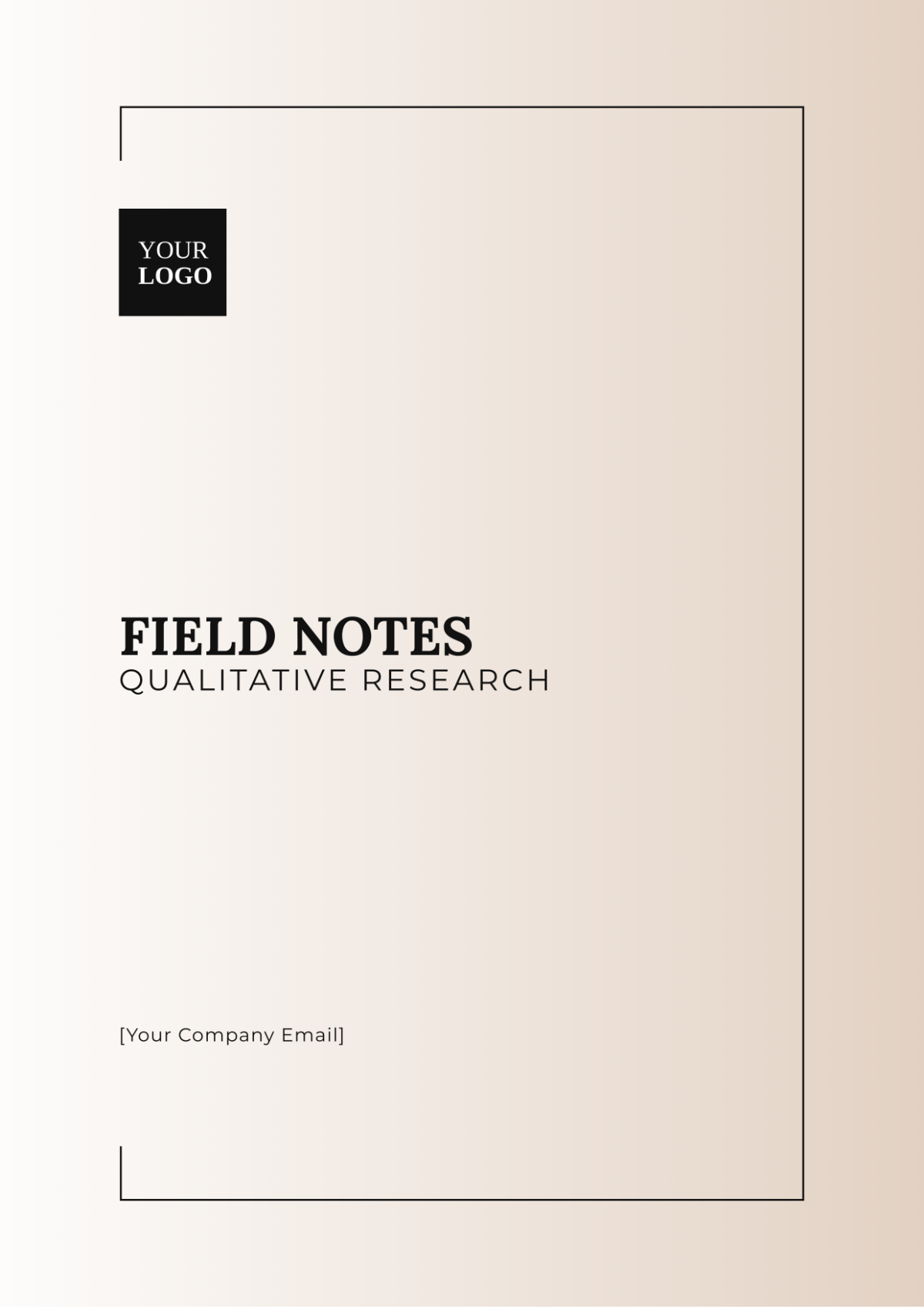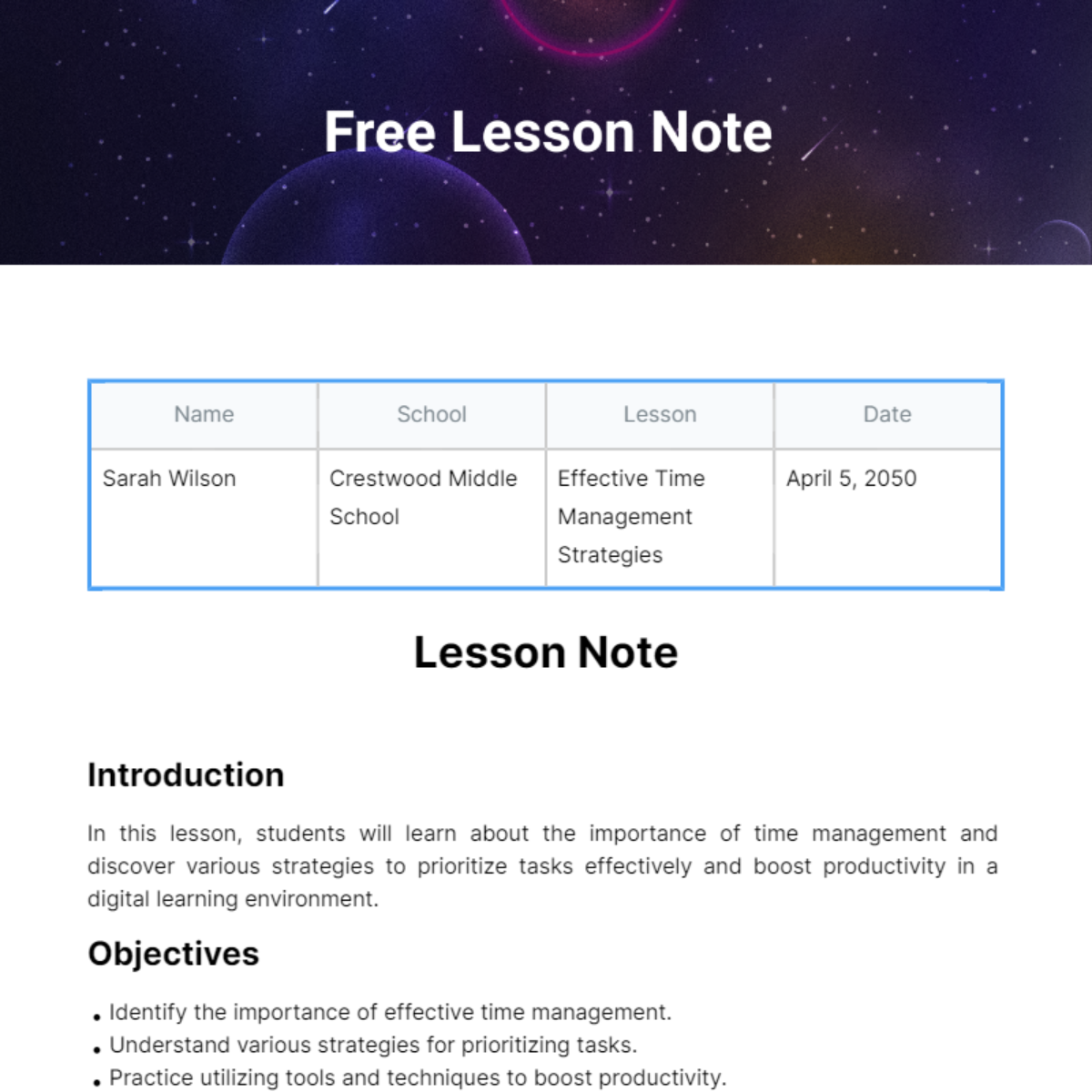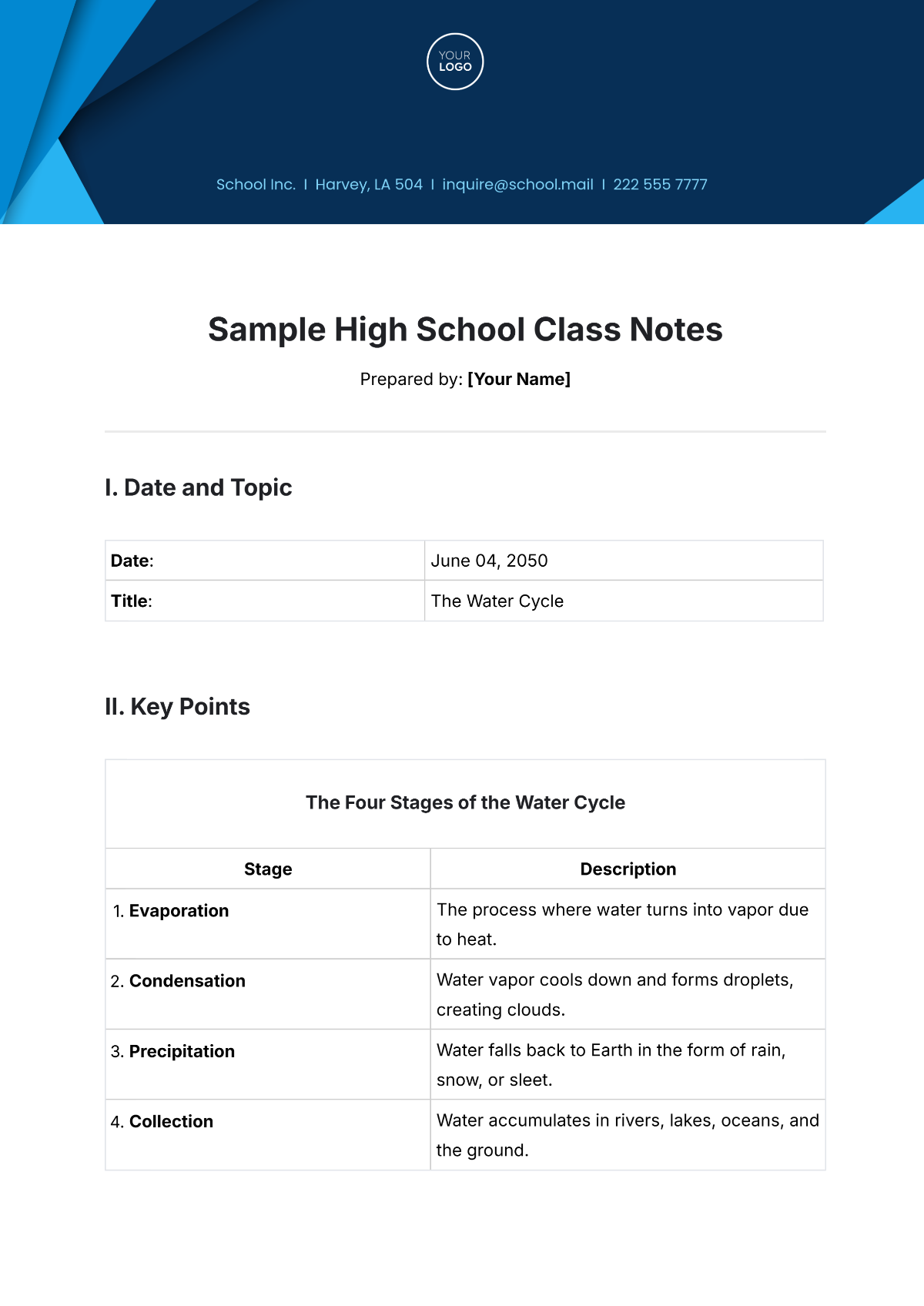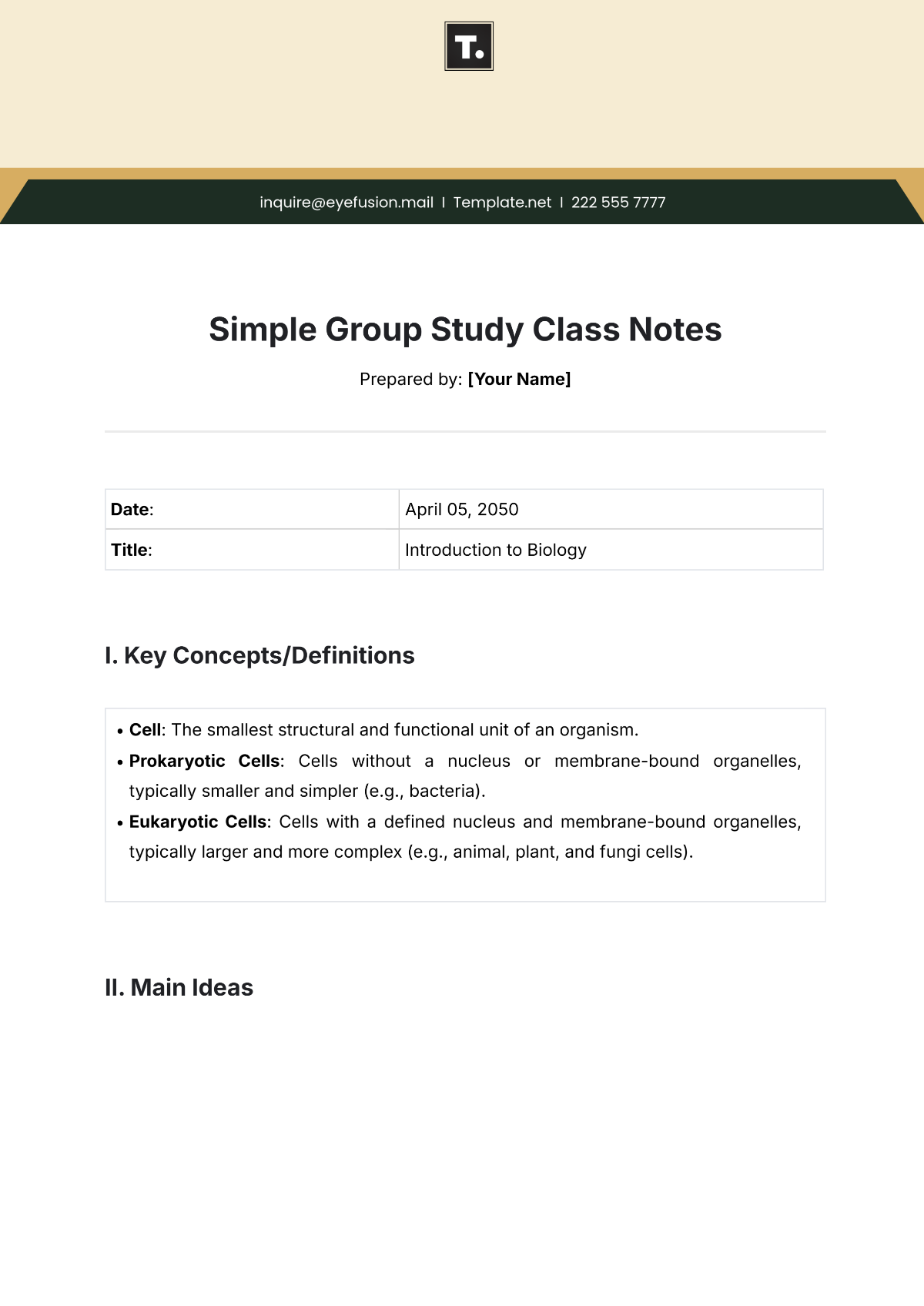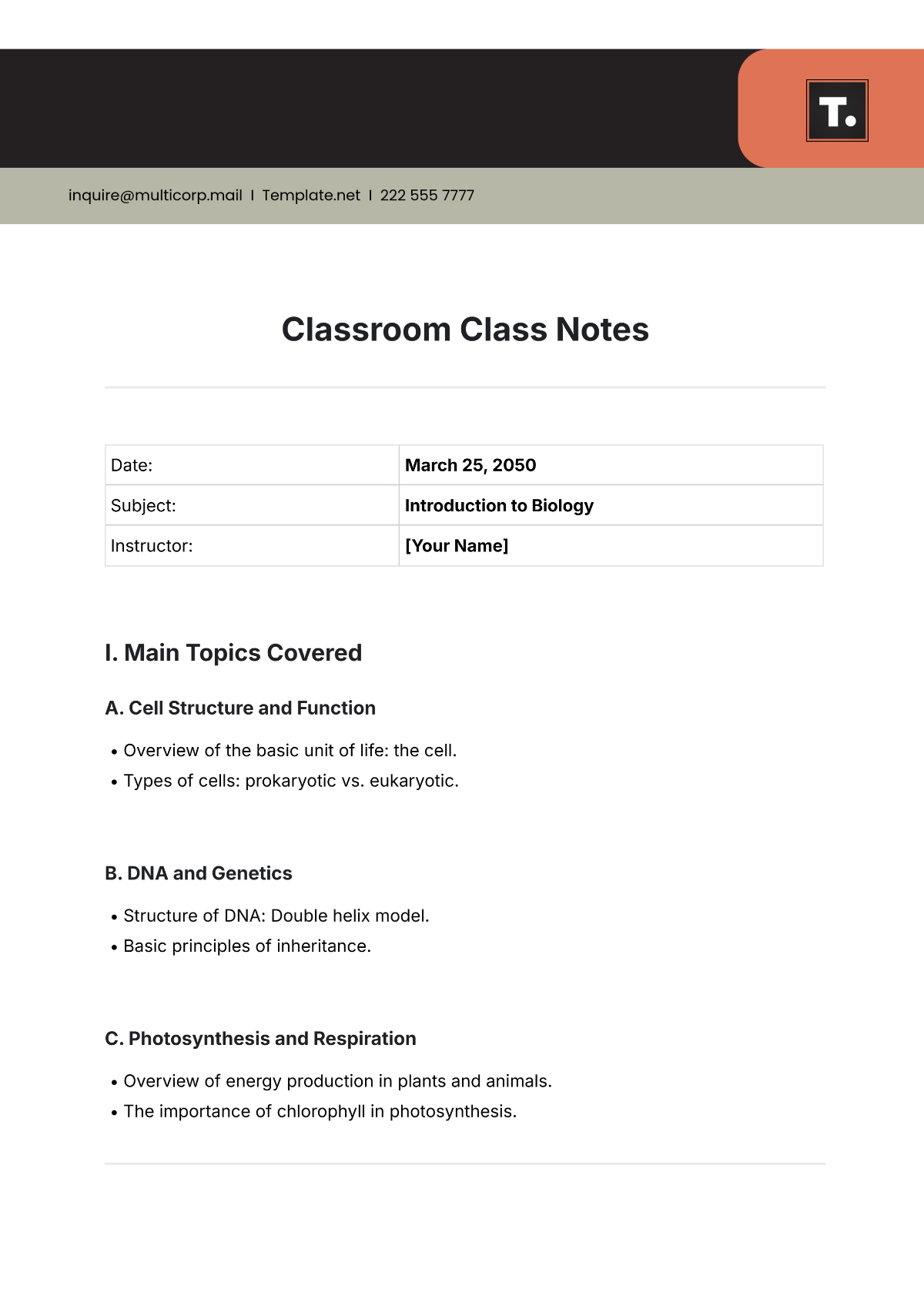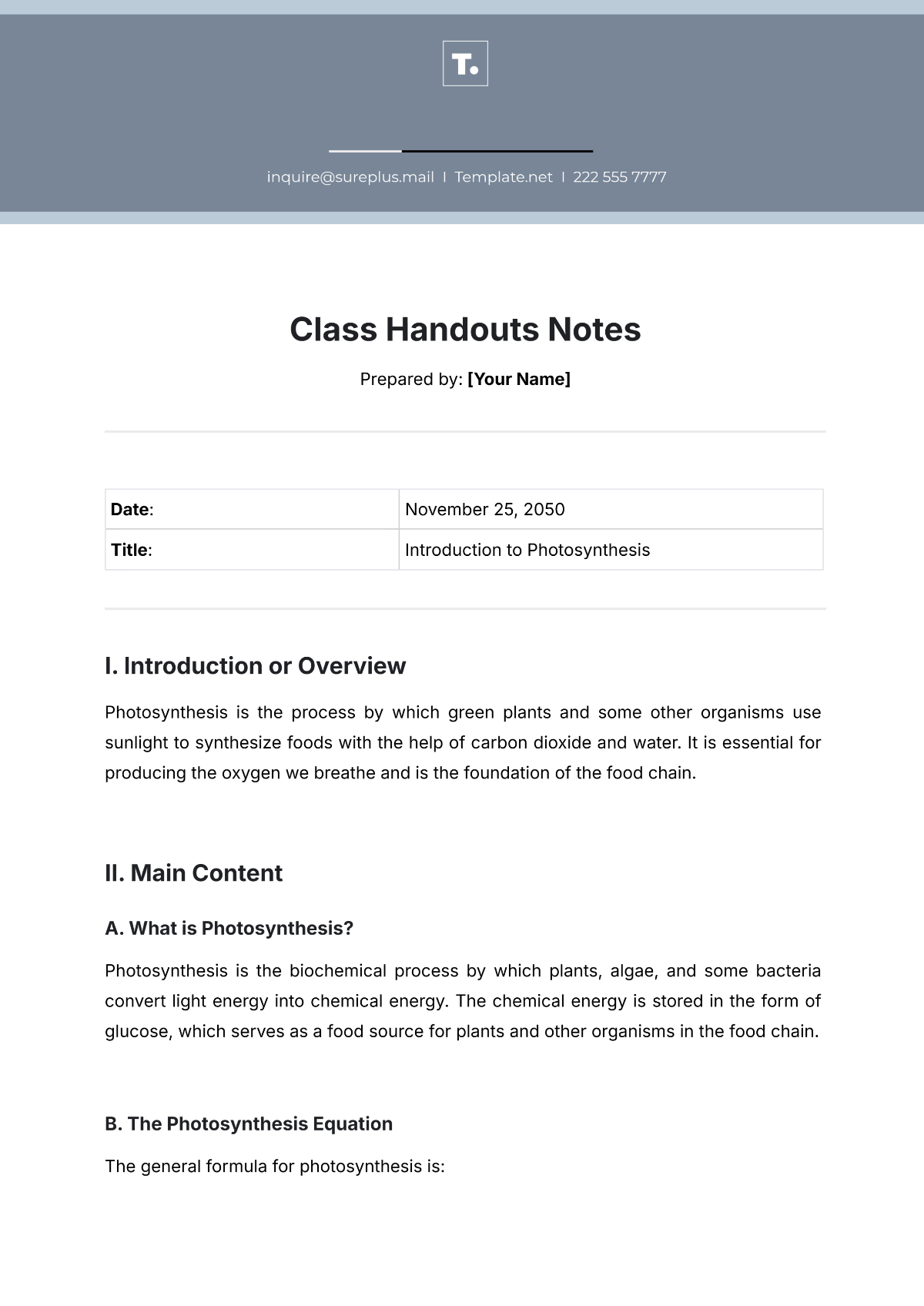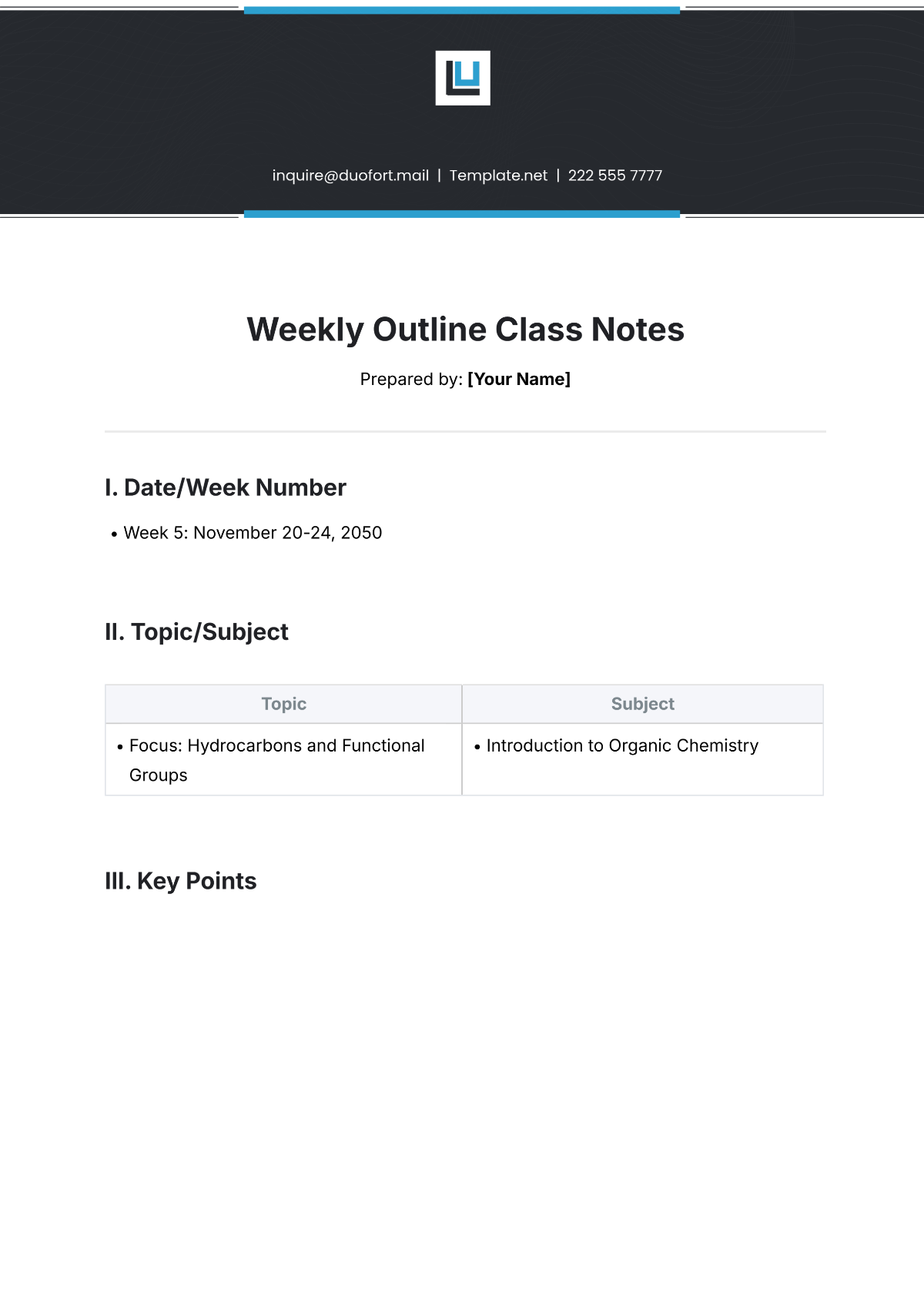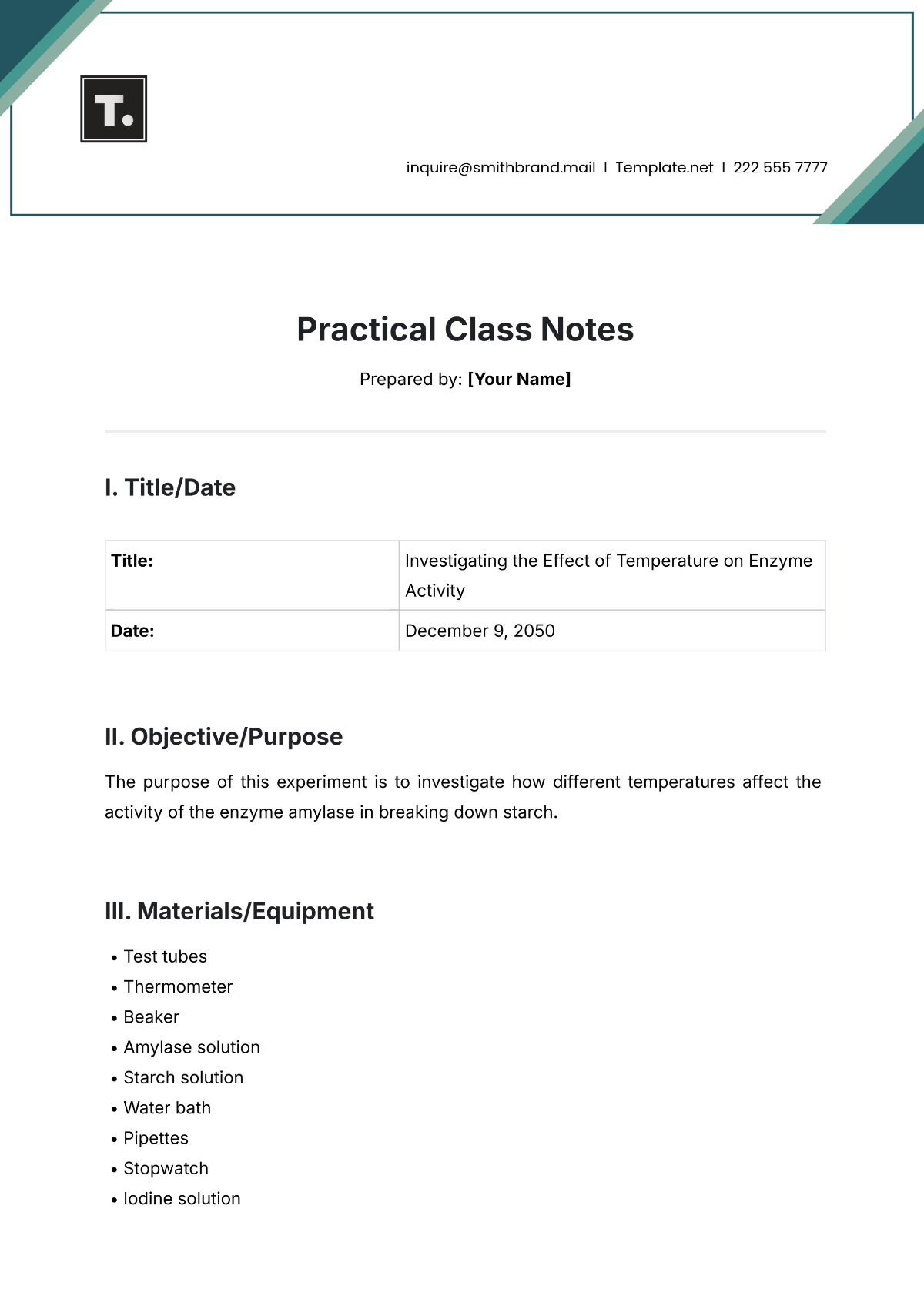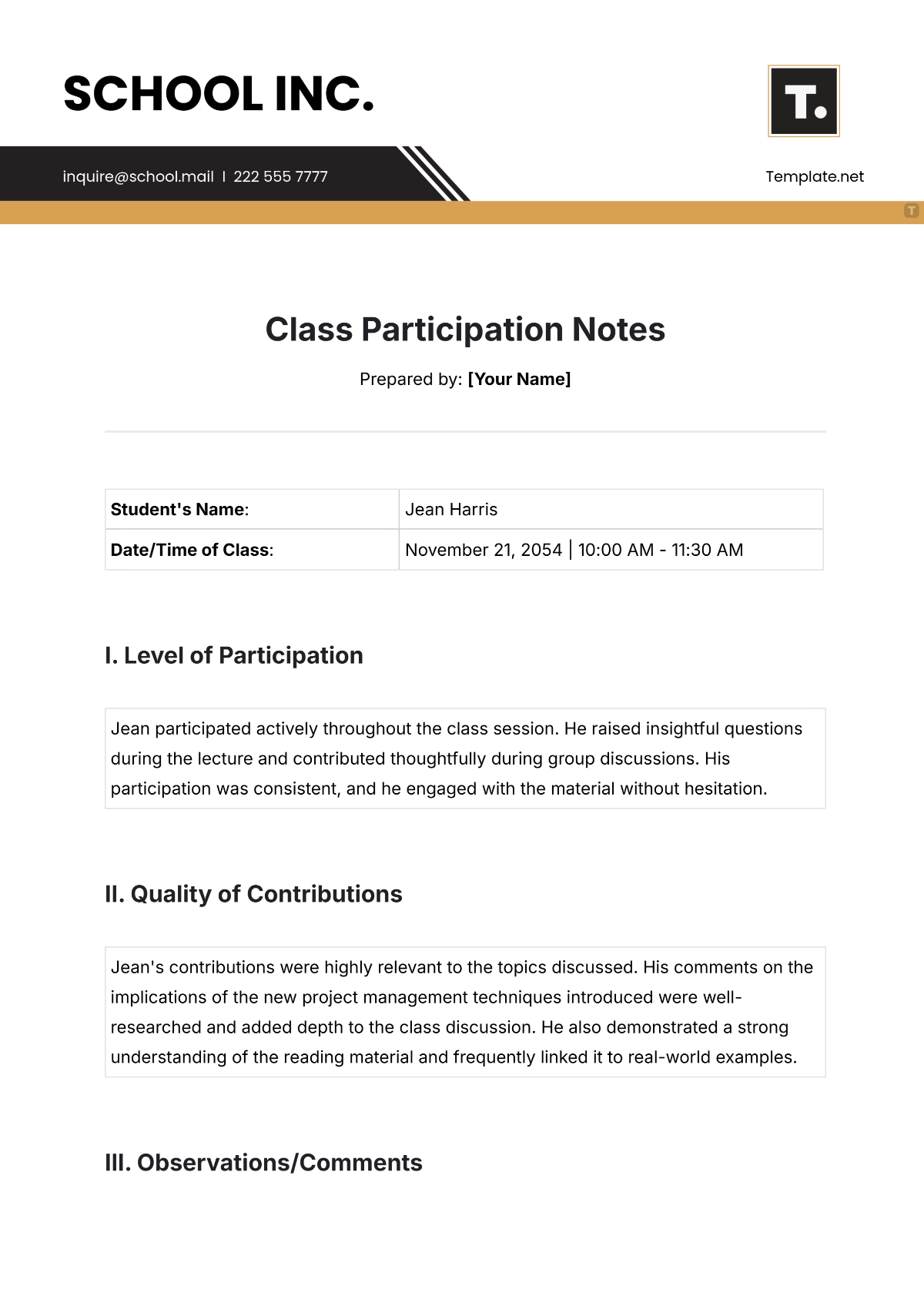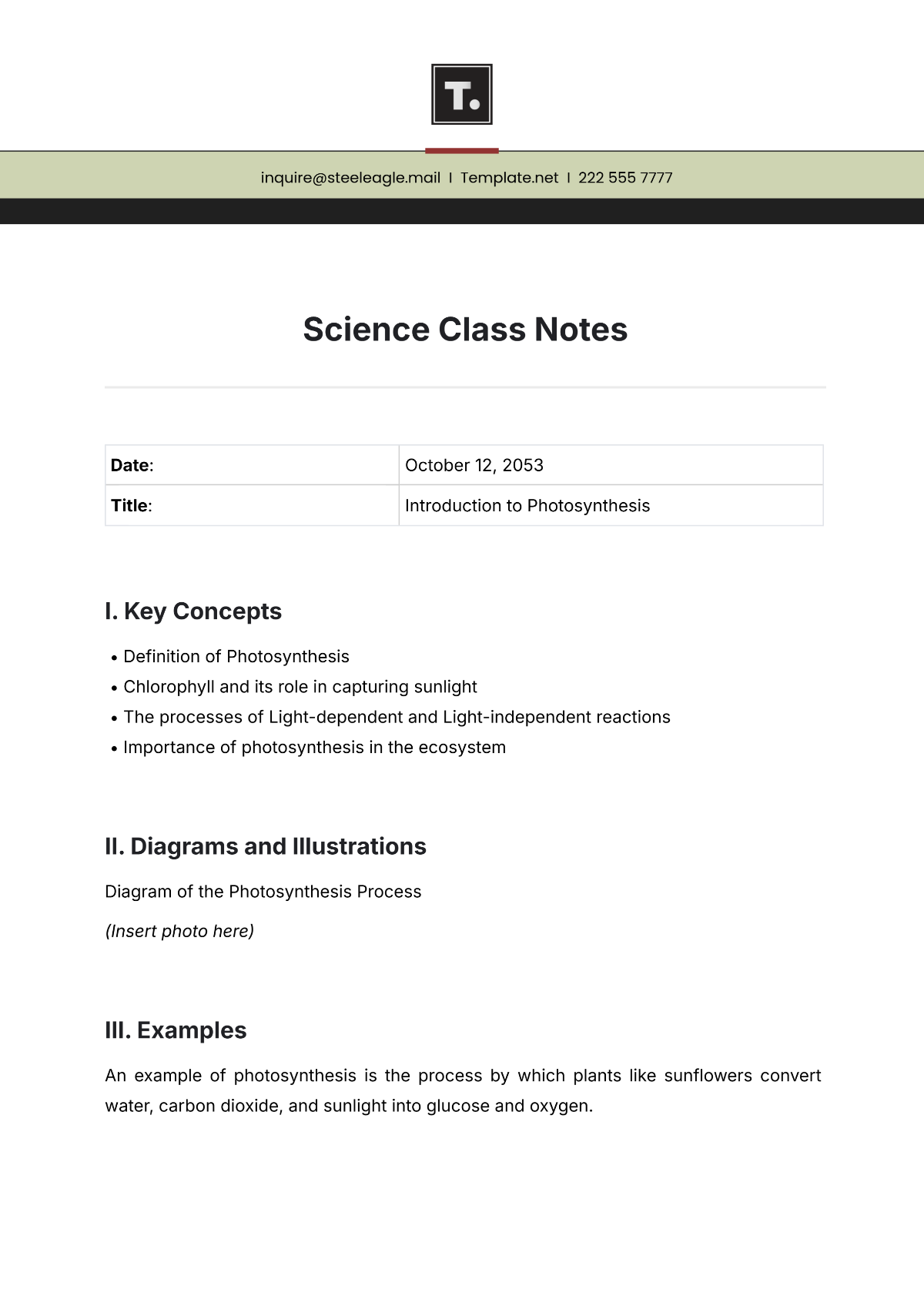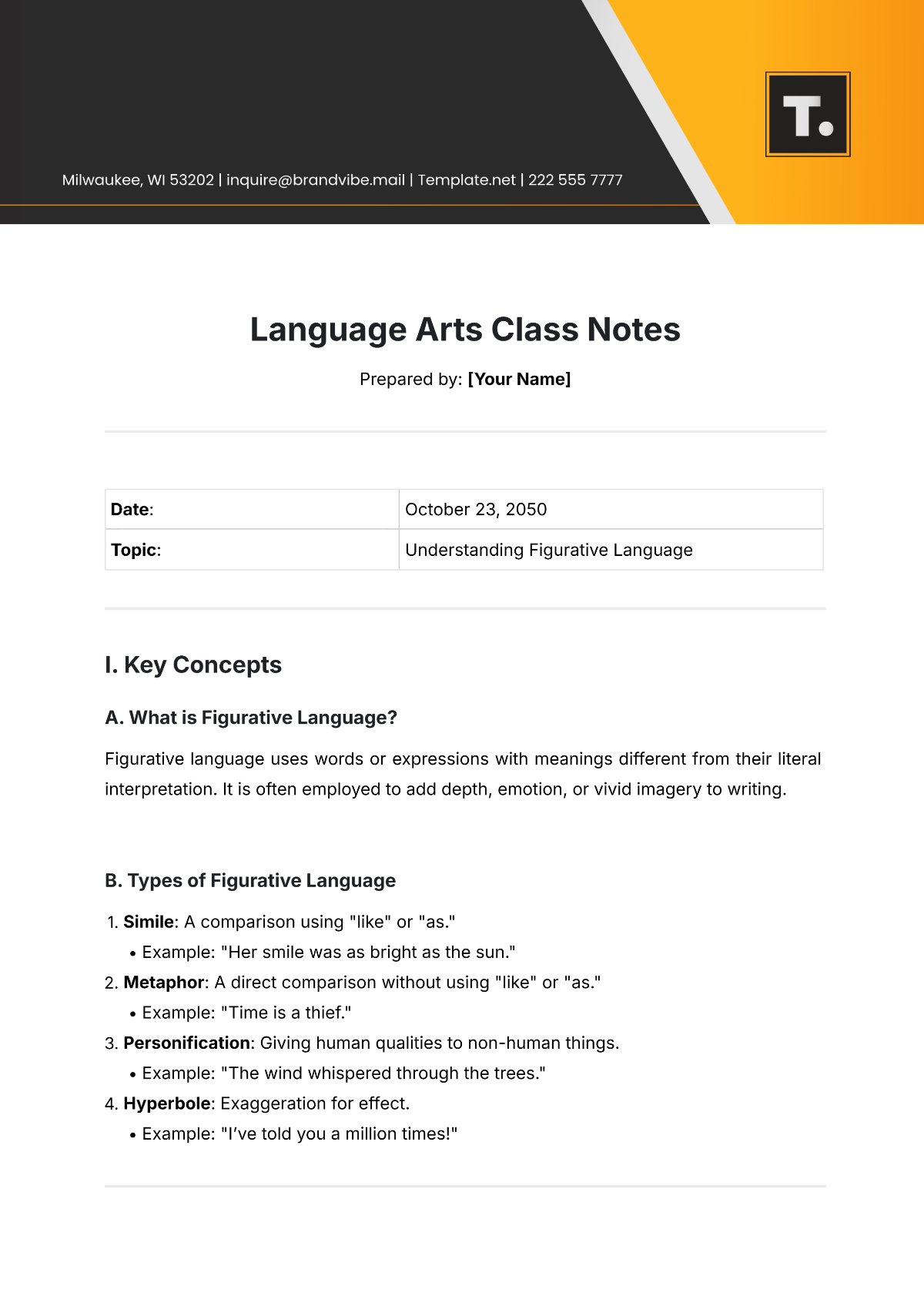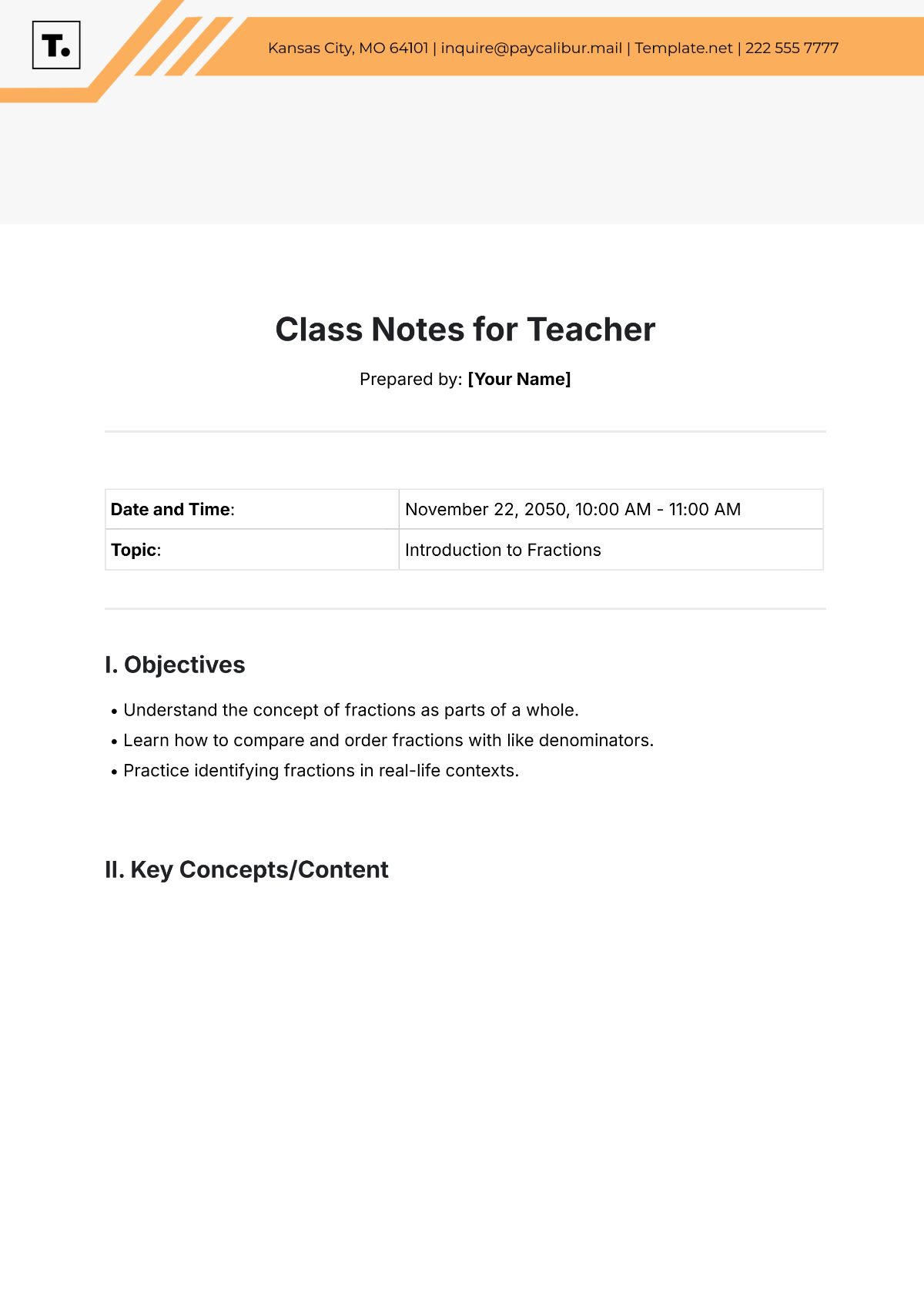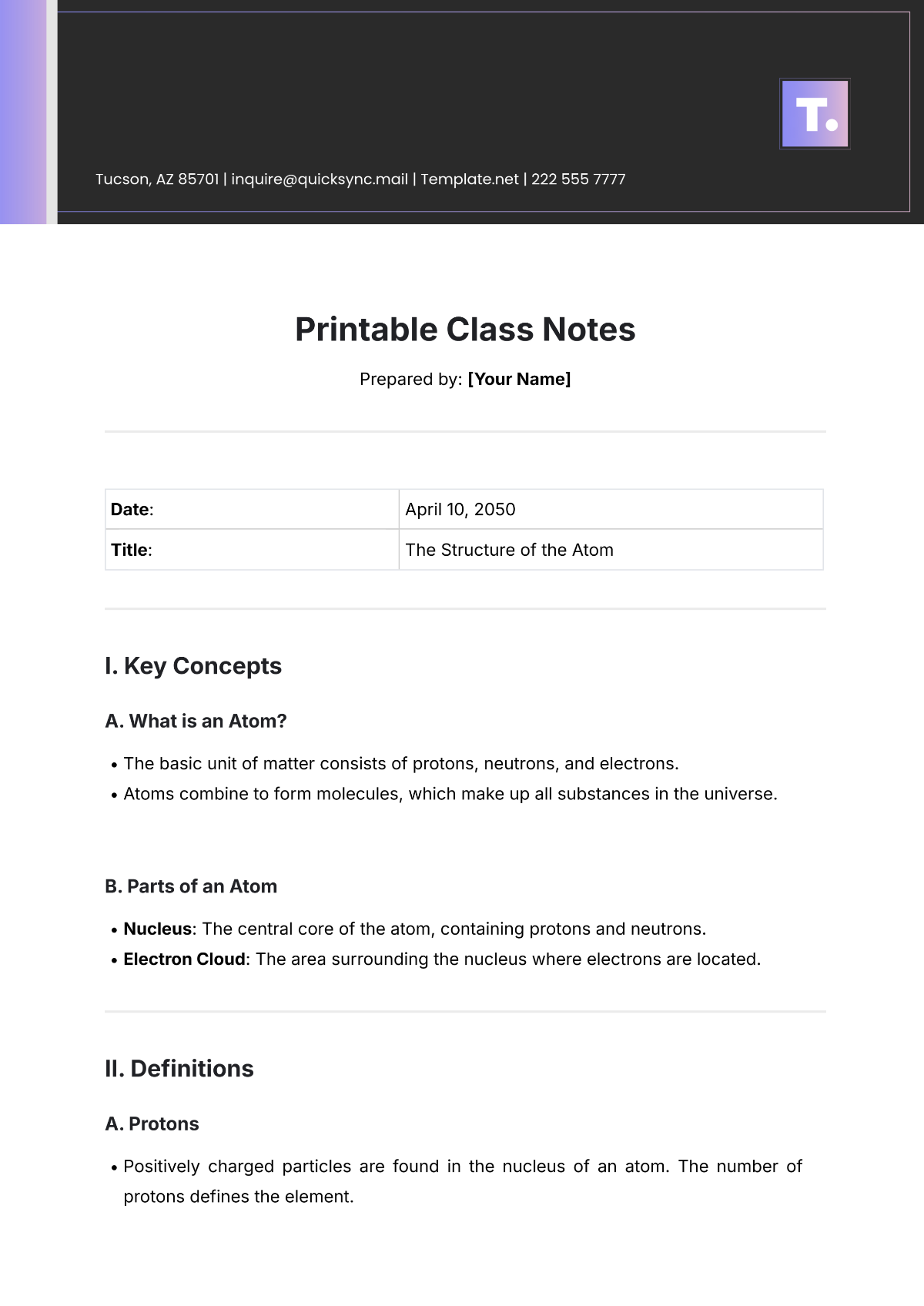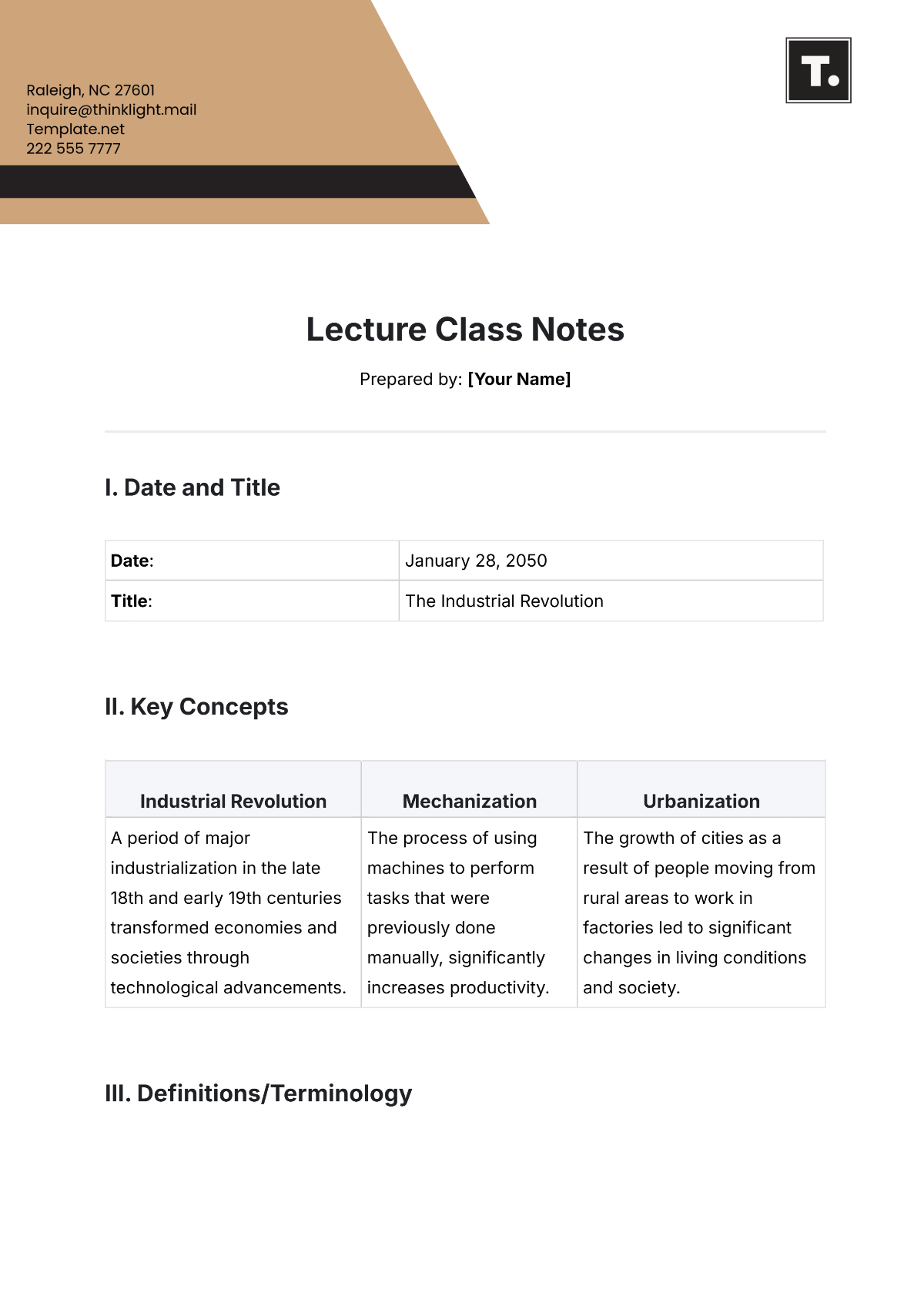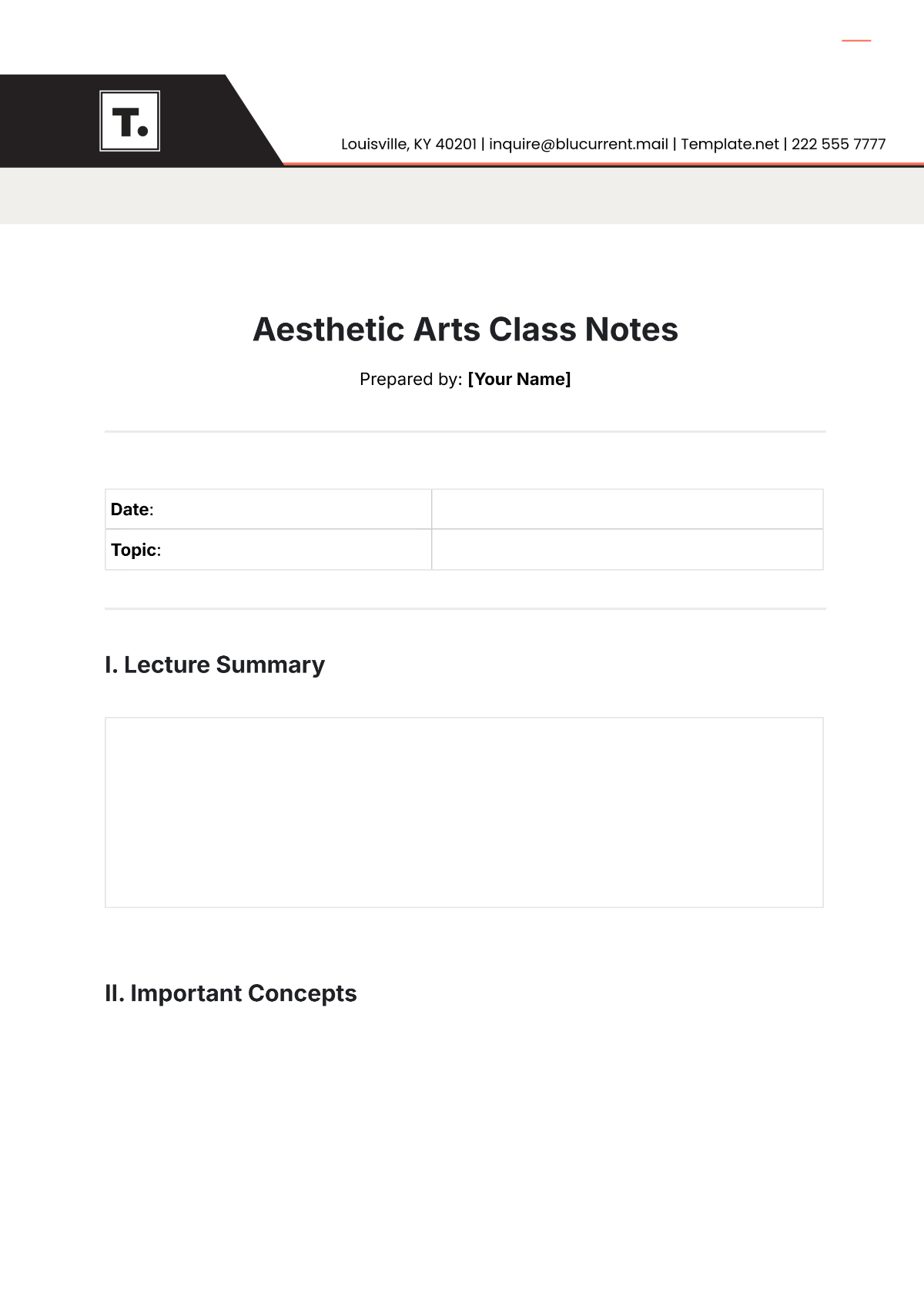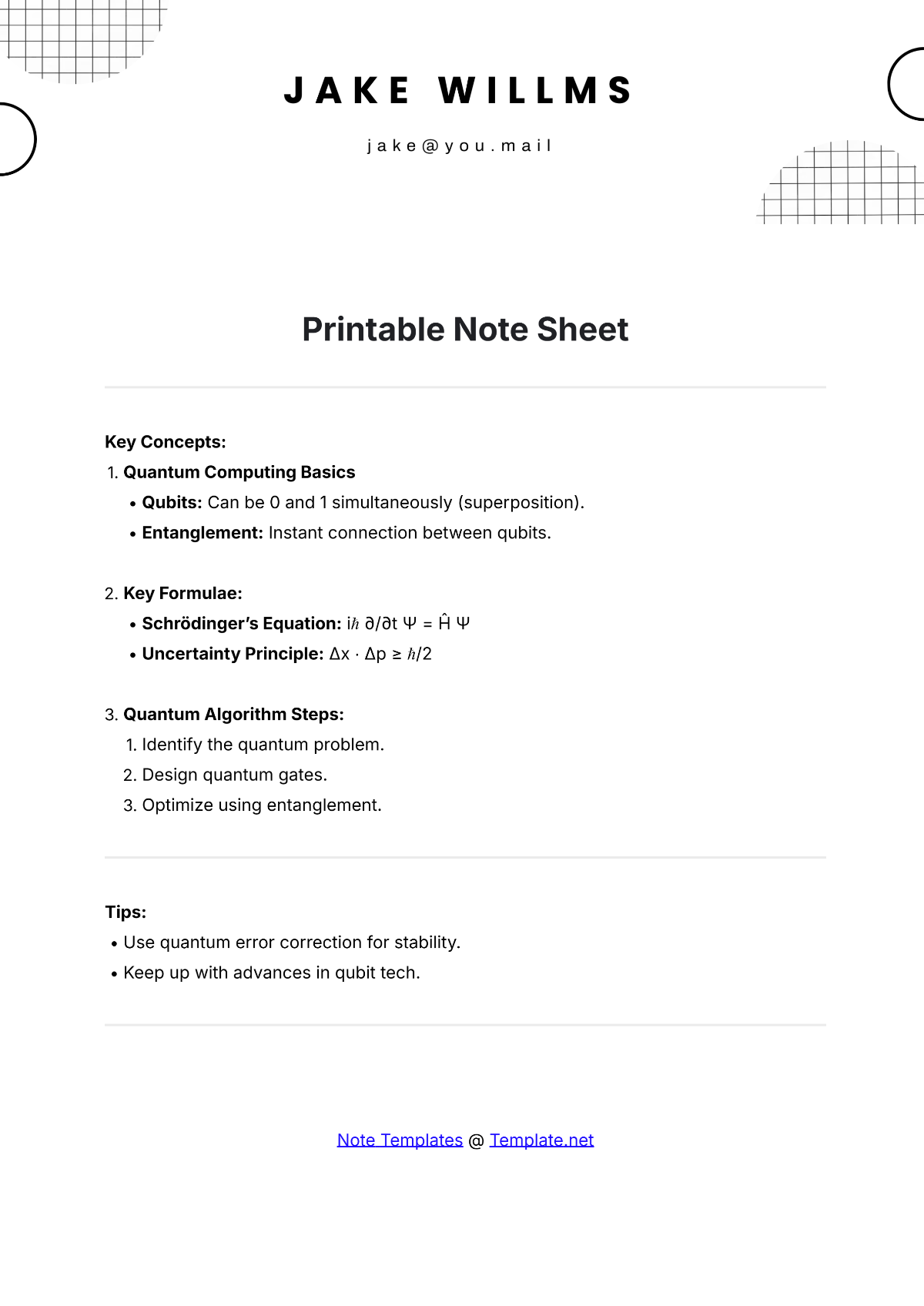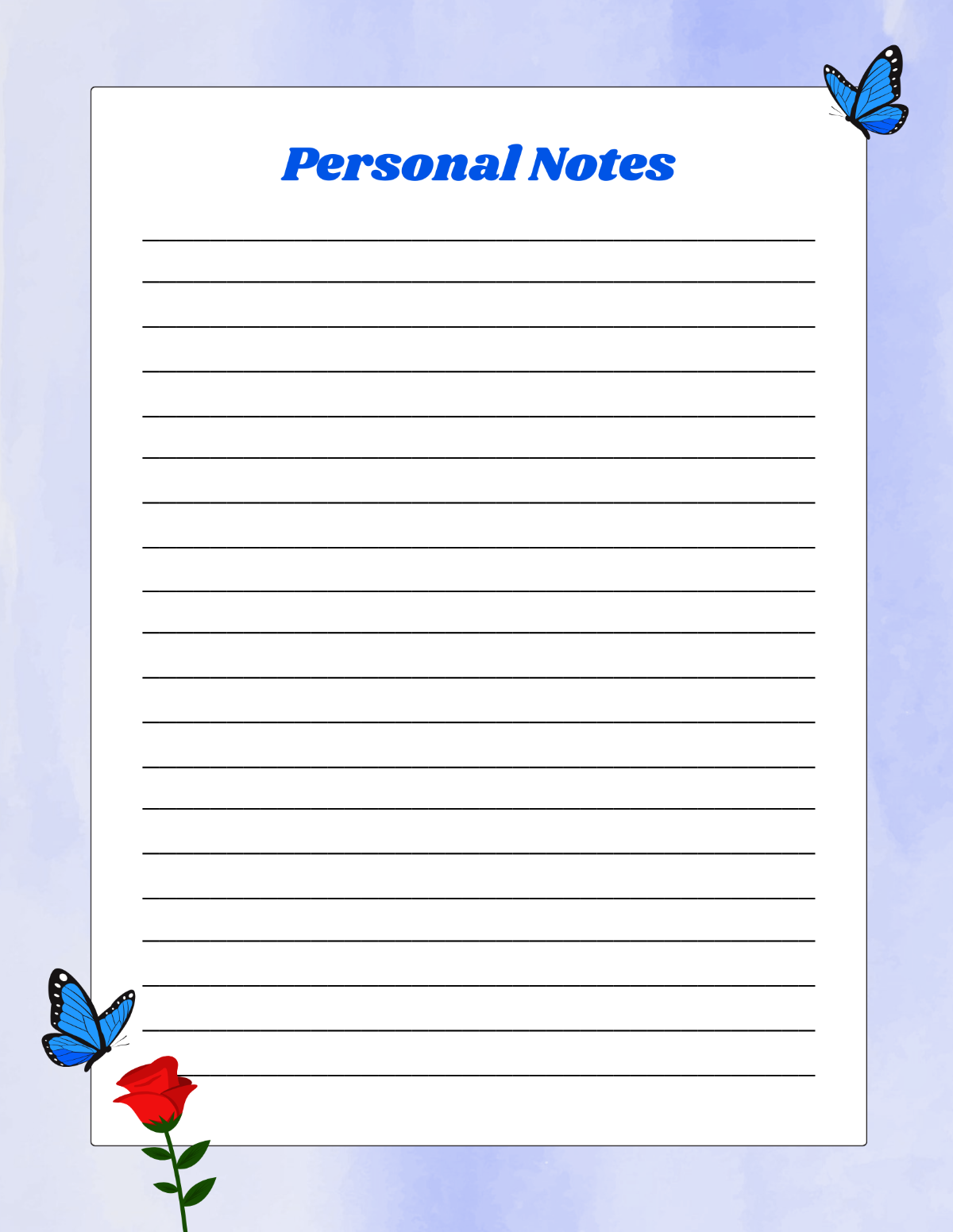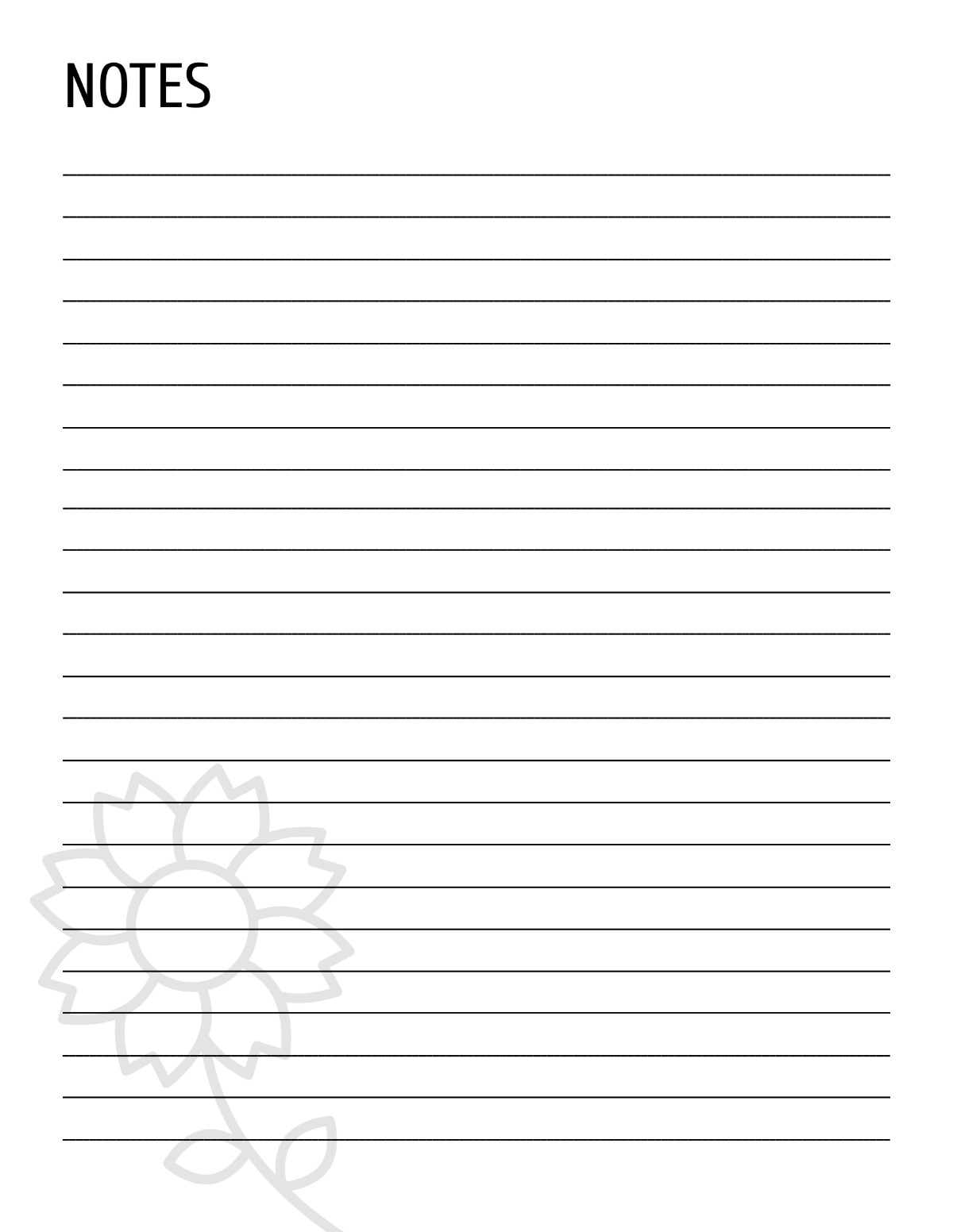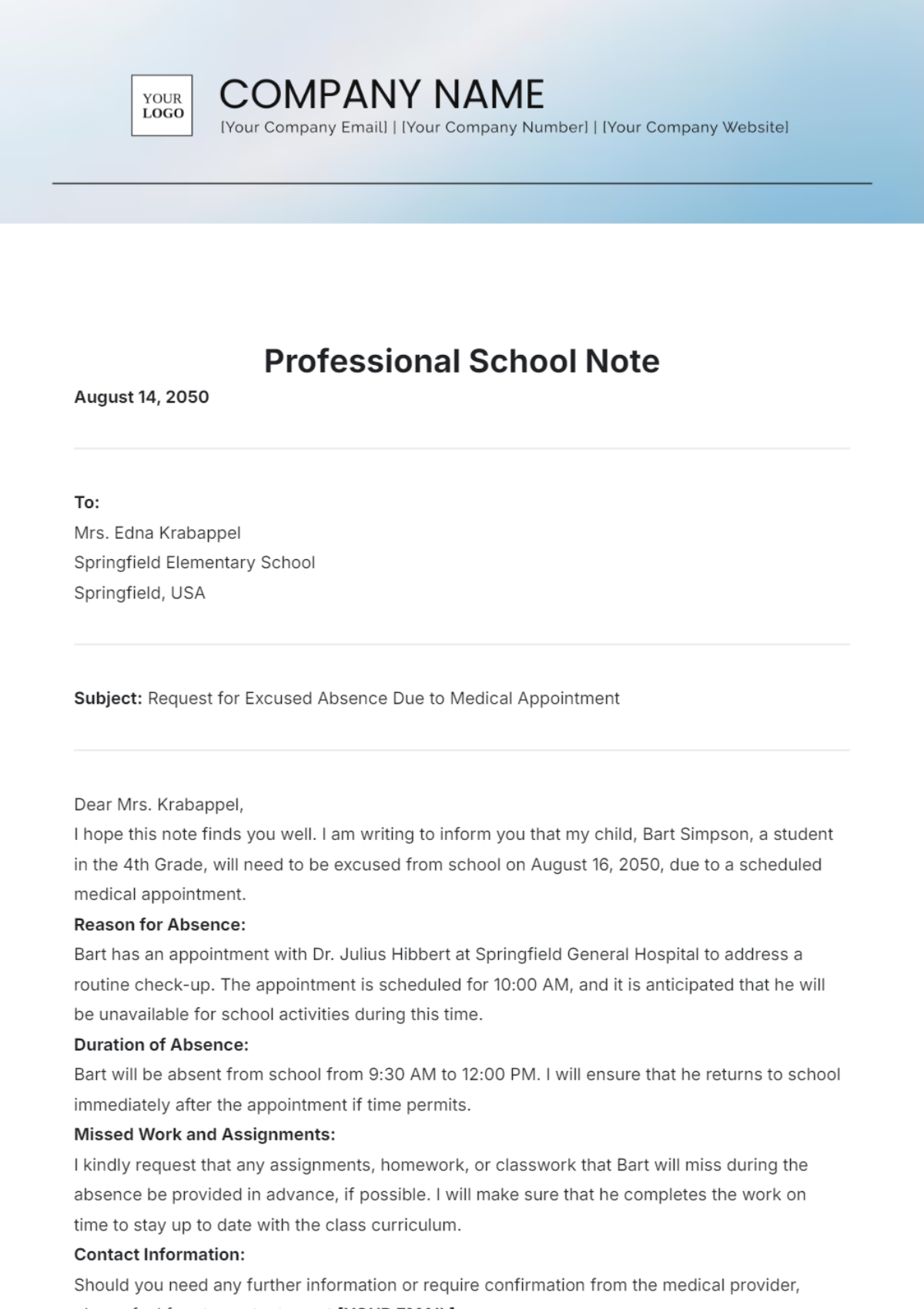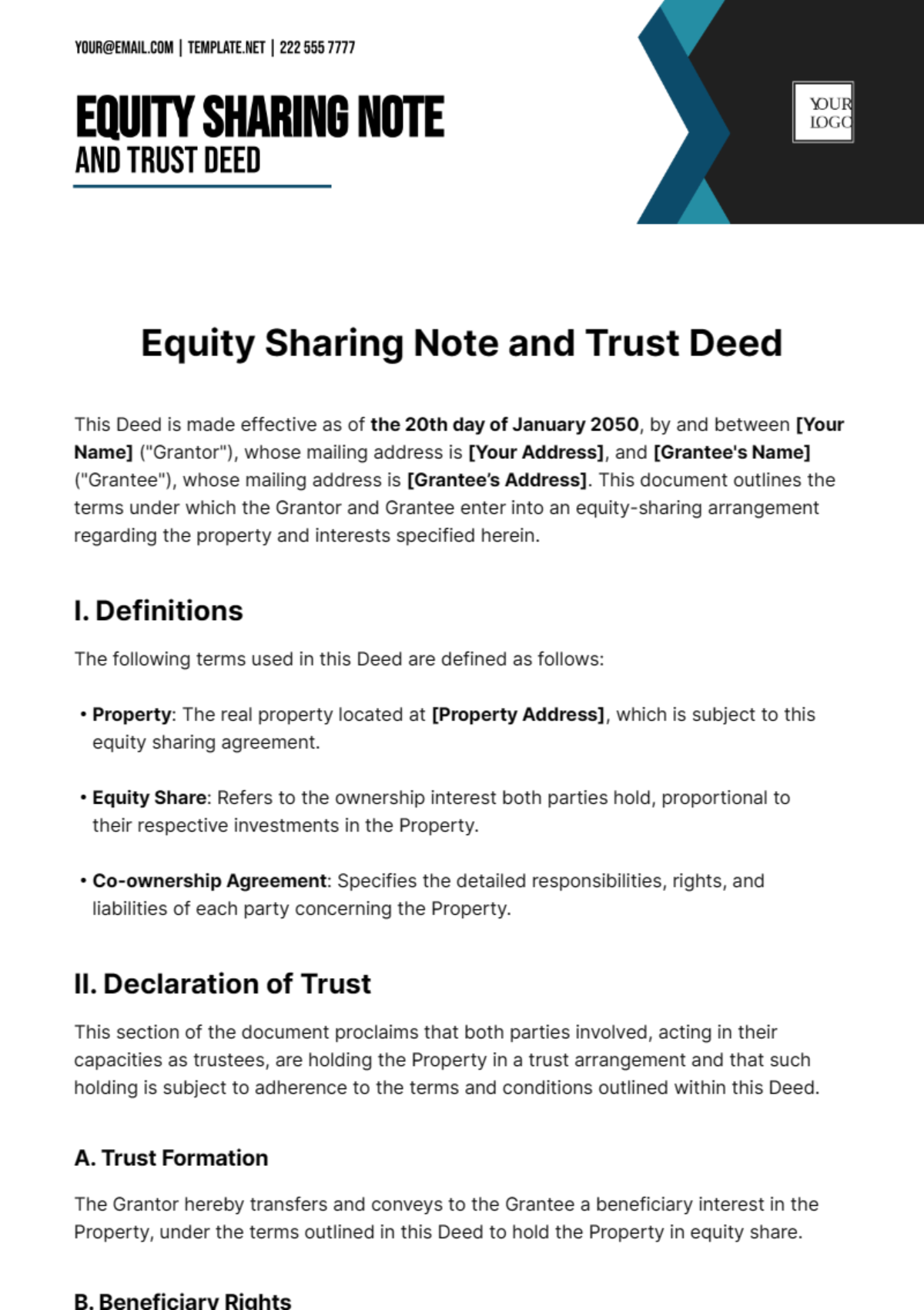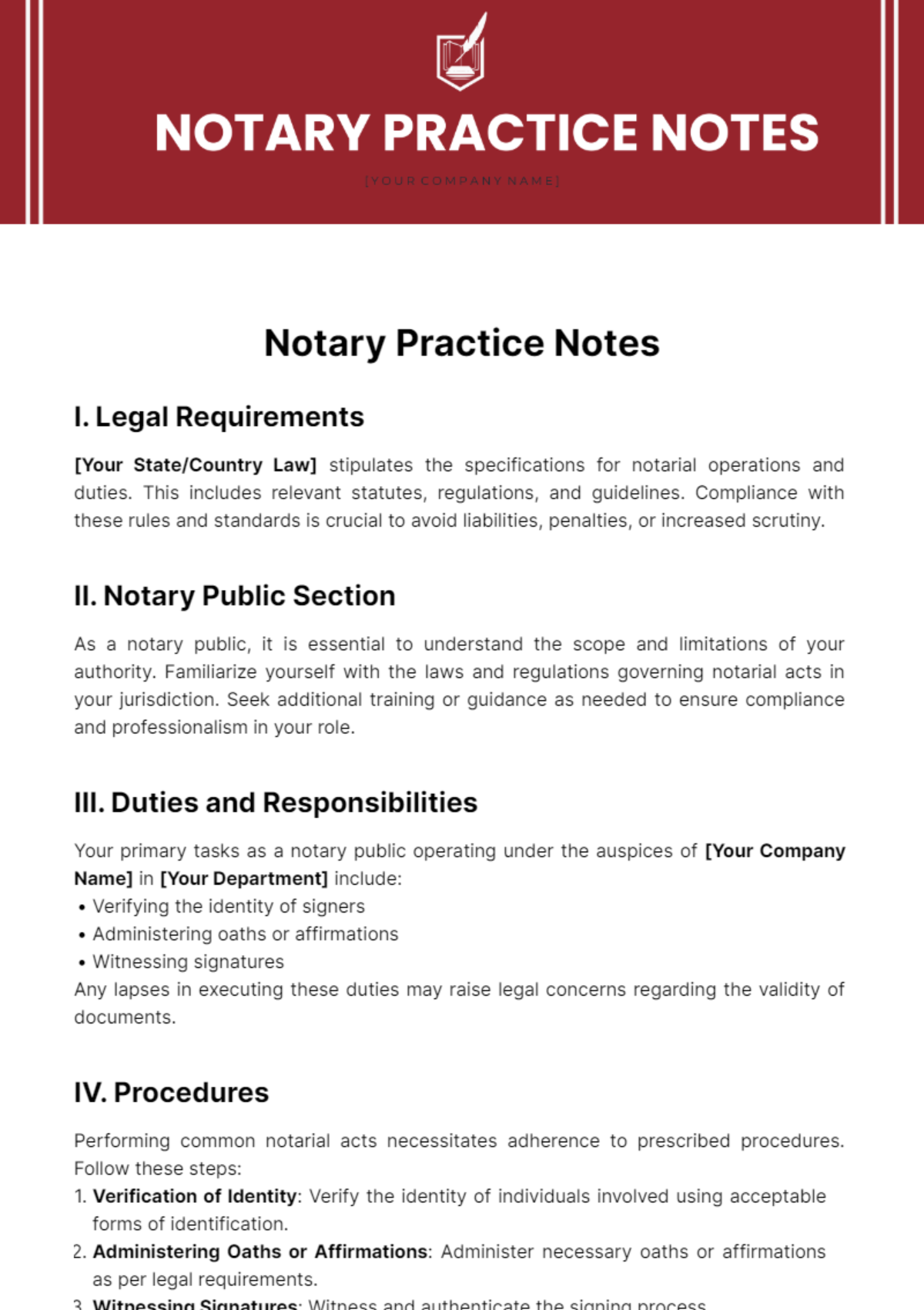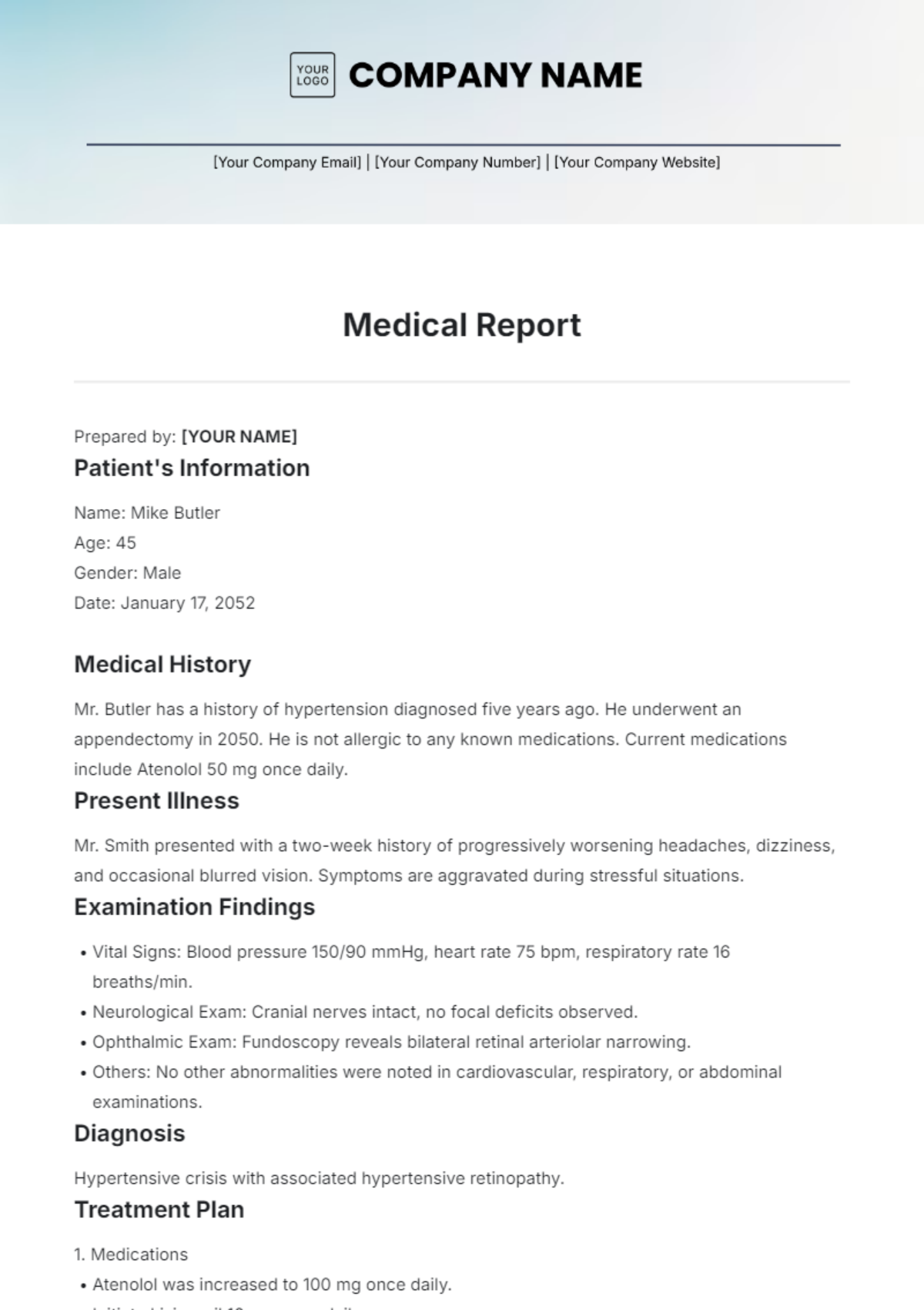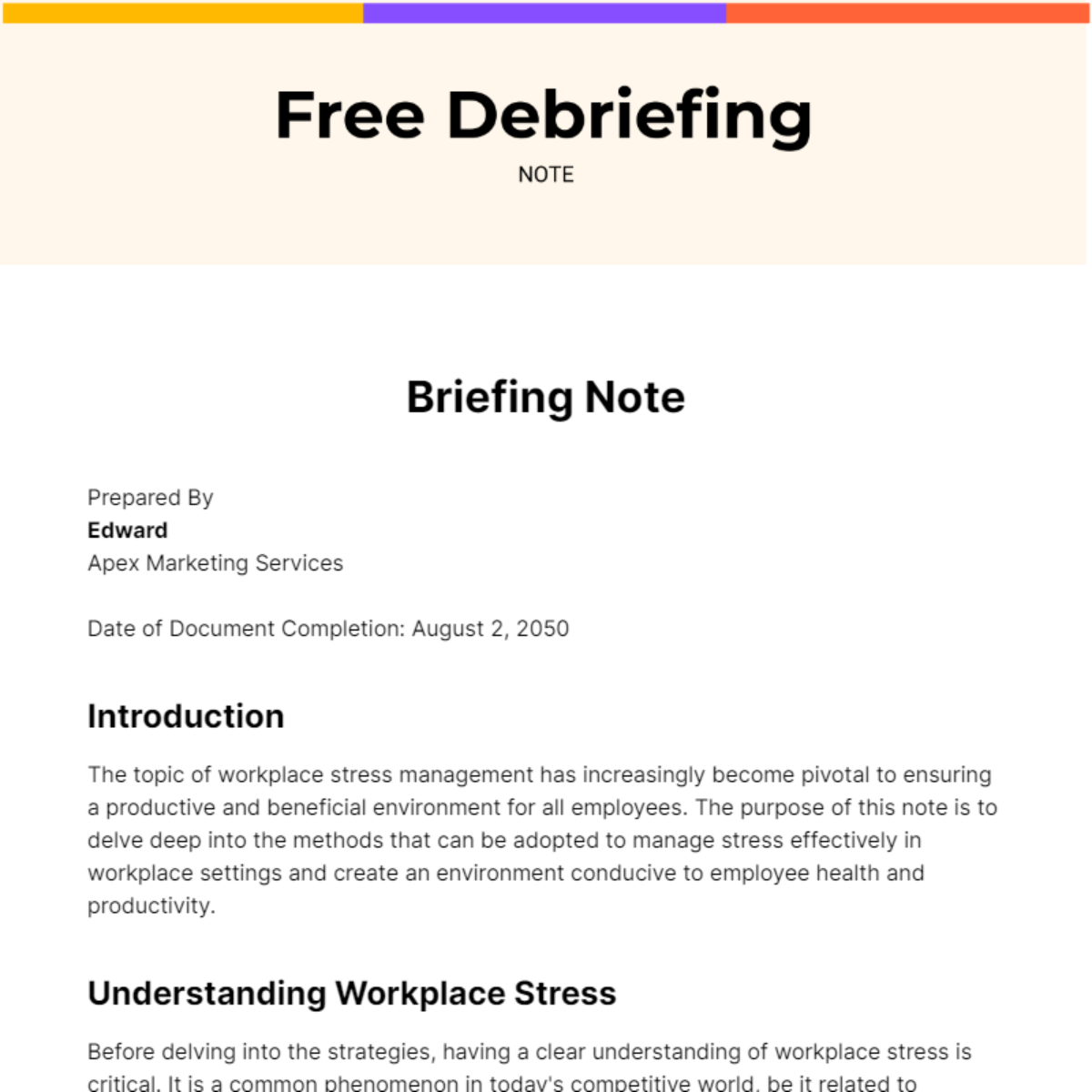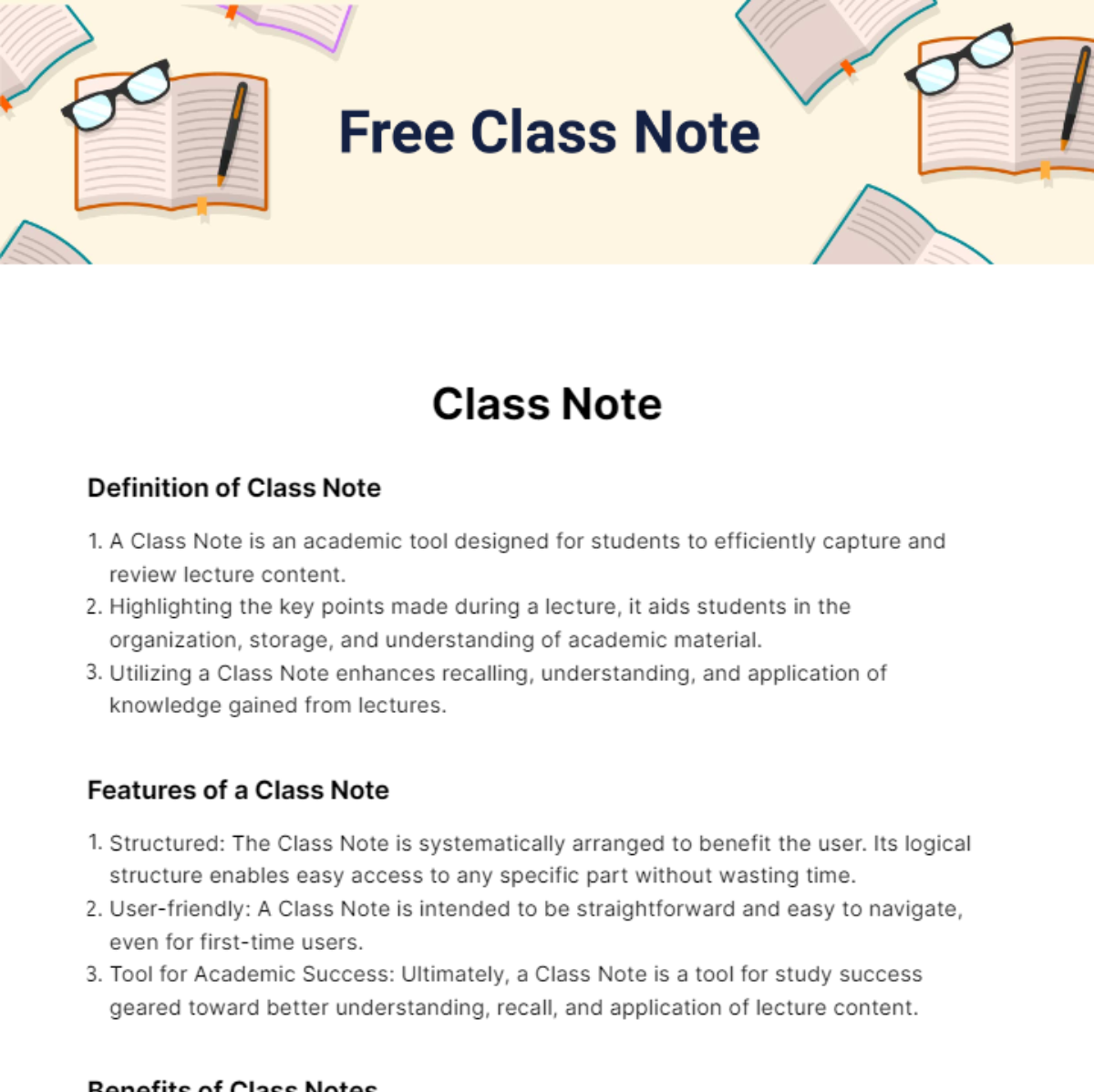Language Arts Class Notes
Prepared by: [Your Name]
Date: | October 23, 2050 |
Topic: | Understanding Figurative Language |
I. Key Concepts
A. What is Figurative Language?
Figurative language uses words or expressions with meanings different from their literal interpretation. It is often employed to add depth, emotion, or vivid imagery to writing.
B. Types of Figurative Language
Simile: A comparison using "like" or "as."
Example: "Her smile was as bright as the sun."
Metaphor: A direct comparison without using "like" or "as."
Example: "Time is a thief."
Personification: Giving human qualities to non-human things.
Example: "The wind whispered through the trees."
Hyperbole: Exaggeration for effect.
Example: "I’ve told you a million times!"
II. Examples
A. Identifying Figurative Language in Literature
Text: The Great Gatsby by F. Scott Fitzgerald
Example: “Her voice is full of money.” (Metaphor)
B. Writing Practice Example
Original Sentence: "The stars were bright."
Enhanced Sentence: "The stars danced playfully in the night sky."
III. Vocabulary
Words to Know
Imagery: Descriptive language that appeals to the senses.
Allusion: An indirect reference to a well-known text, event, or idea.
Symbolism: The use of symbols to represent ideas or concepts.
IV. Questions/Discussions
A. Class Questions
How does figurative language enhance a story?
Can figurative language be overused in writing? Why or why not?
B. Discussion Highlight
A classmate noted that metaphors can make abstract ideas more relatable, which helps readers connect emotionally with the text.
V. Homework/Assignments
Assignment
Read a poem of your choice and identify at least three types of figurative language used.
Write a short paragraph explaining how these elements contribute to the poem's theme.
VI. Personal Insights
I find metaphors particularly interesting because they can make even simple ideas feel profound. This lesson showed me how much power words have when used creatively.
